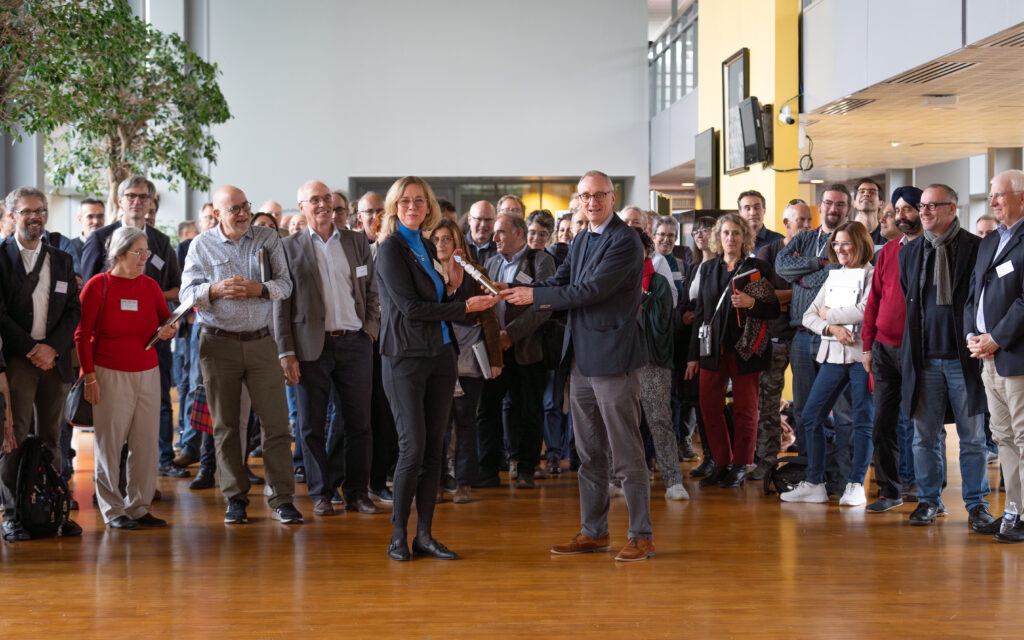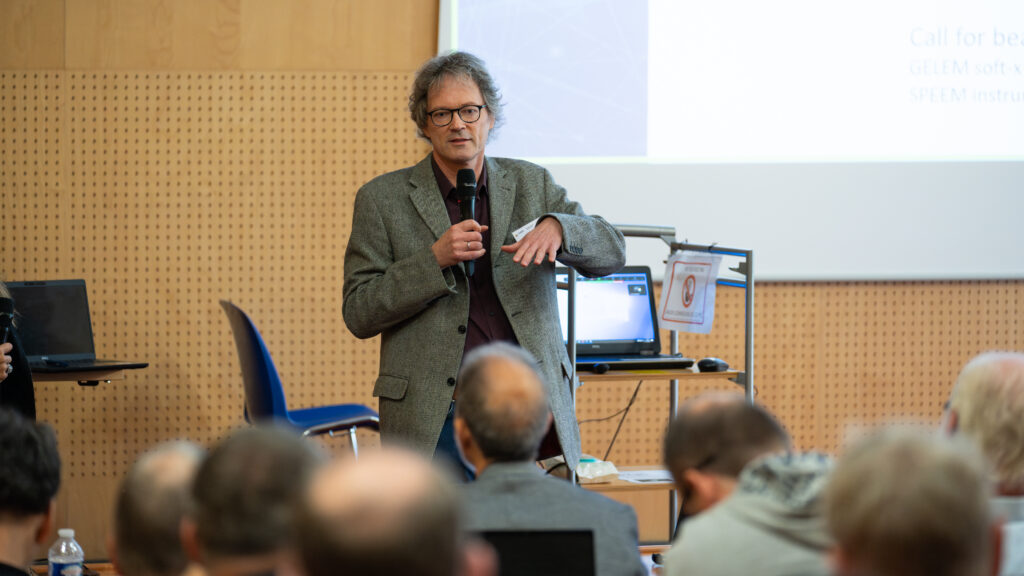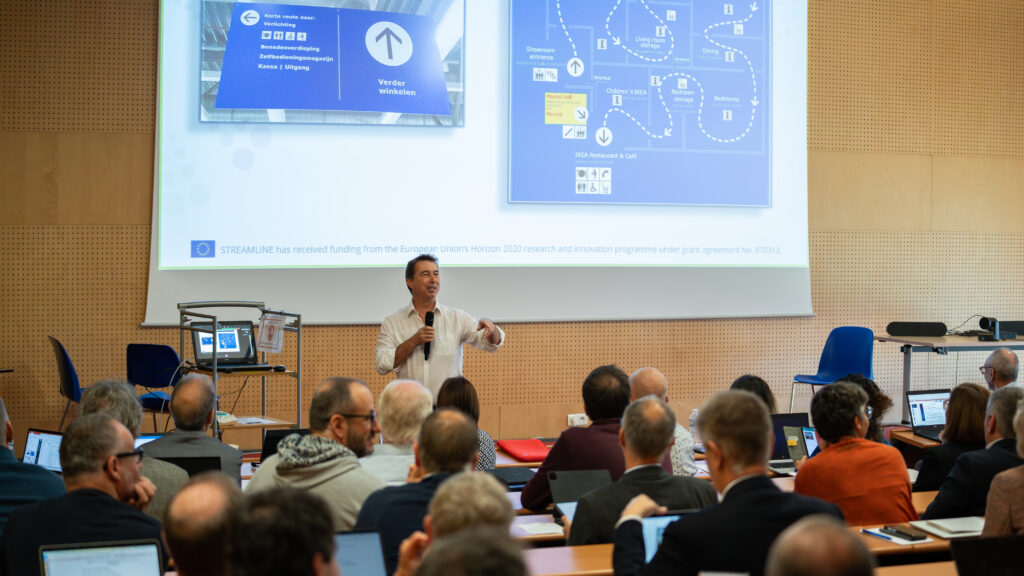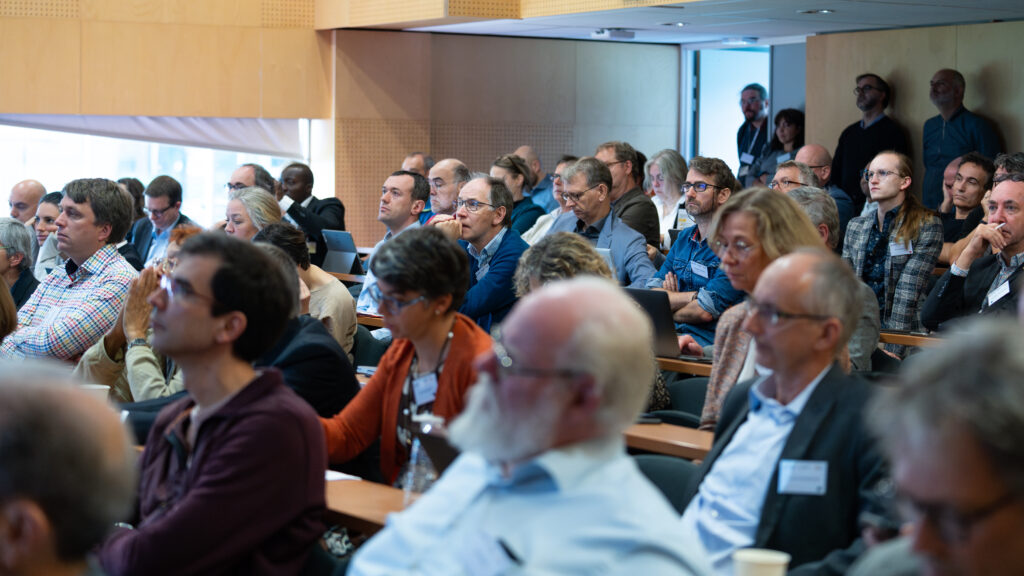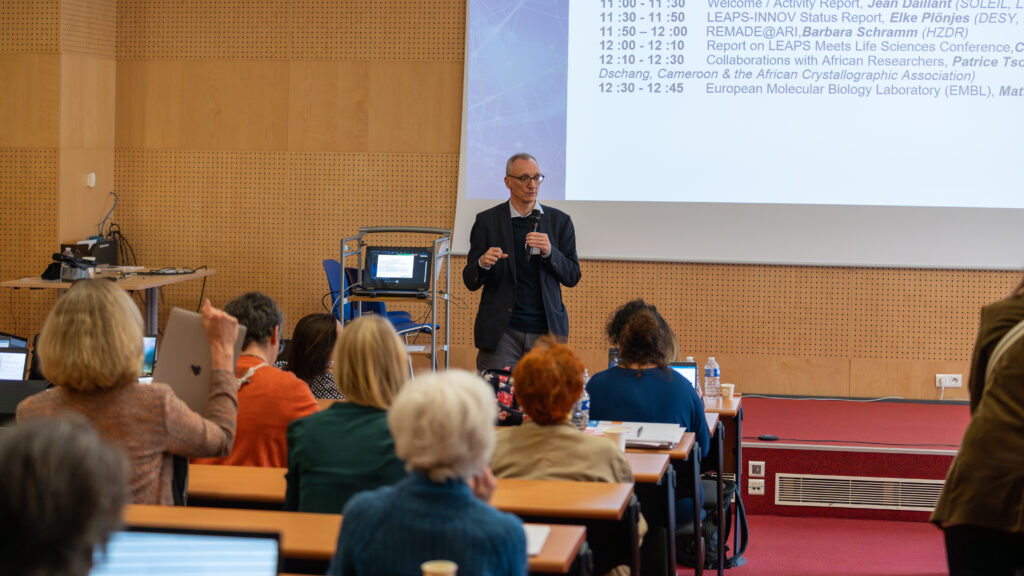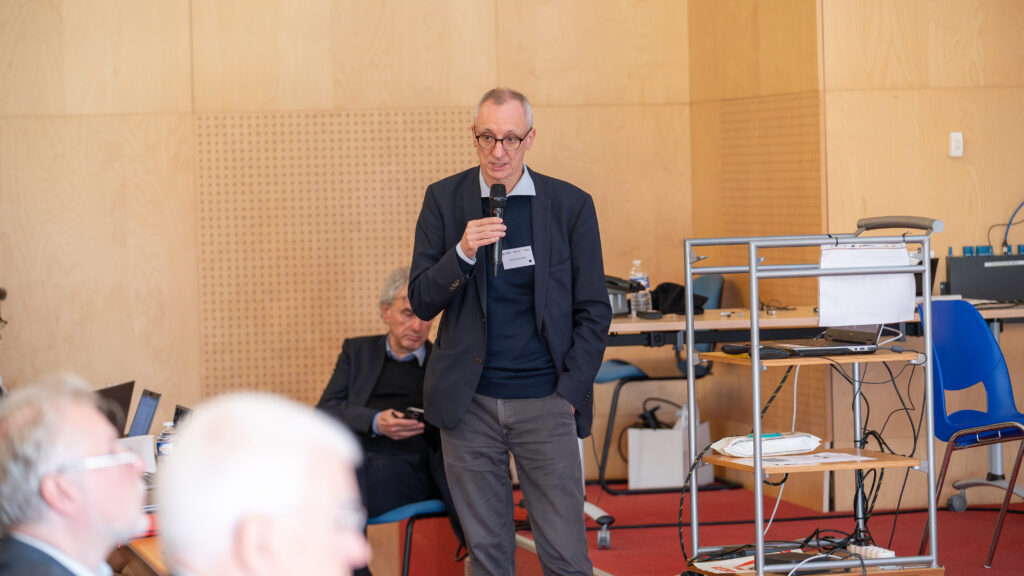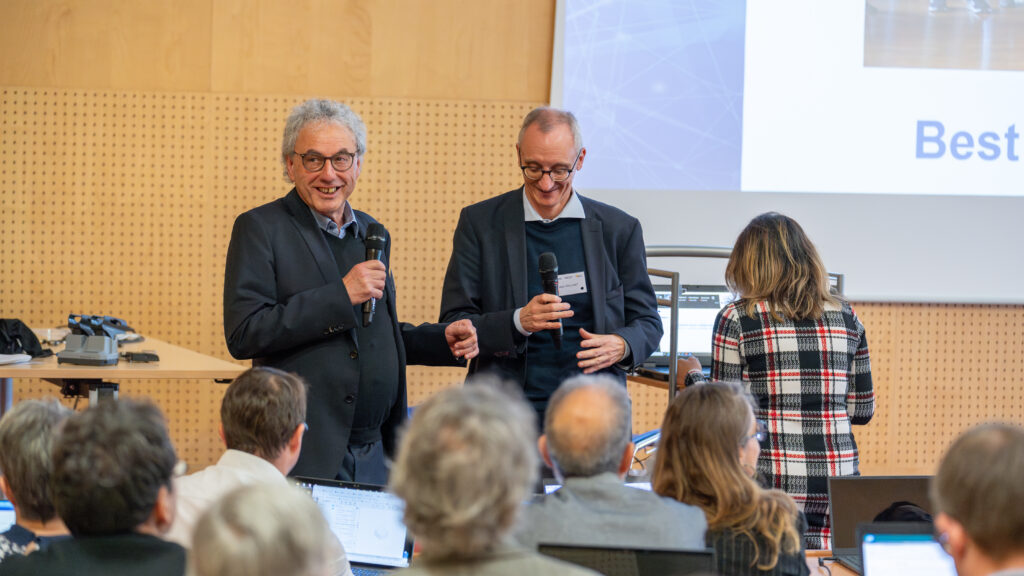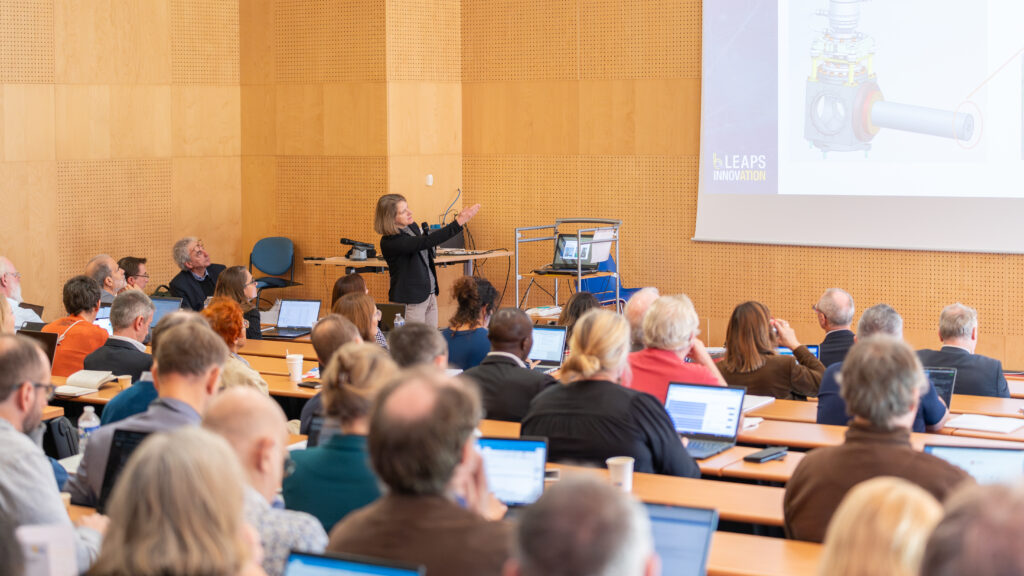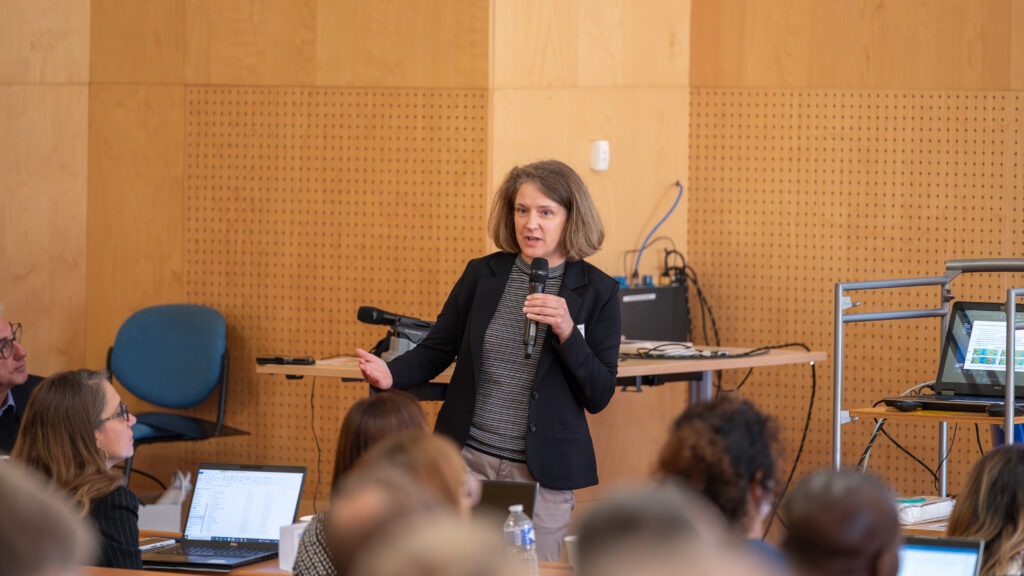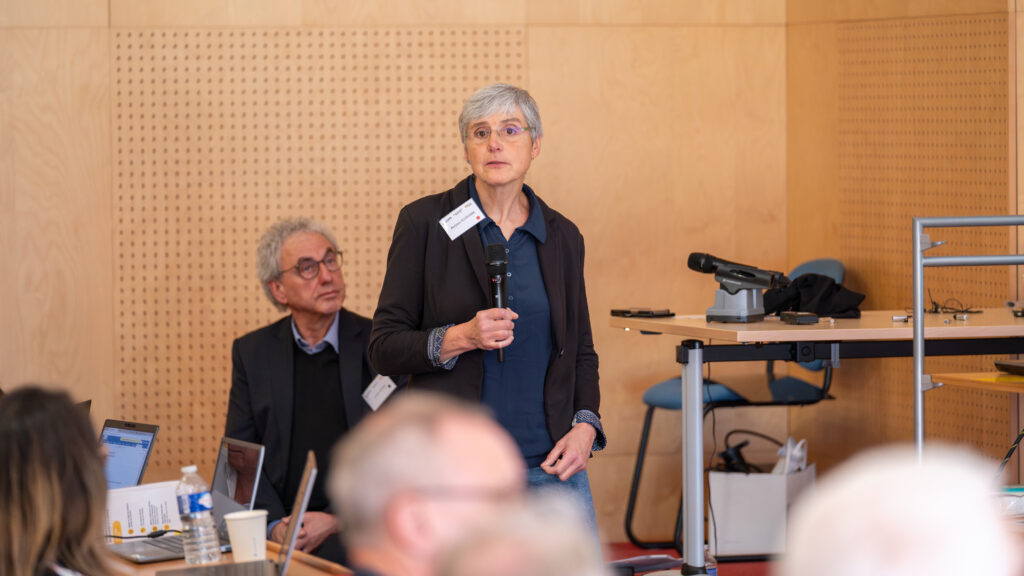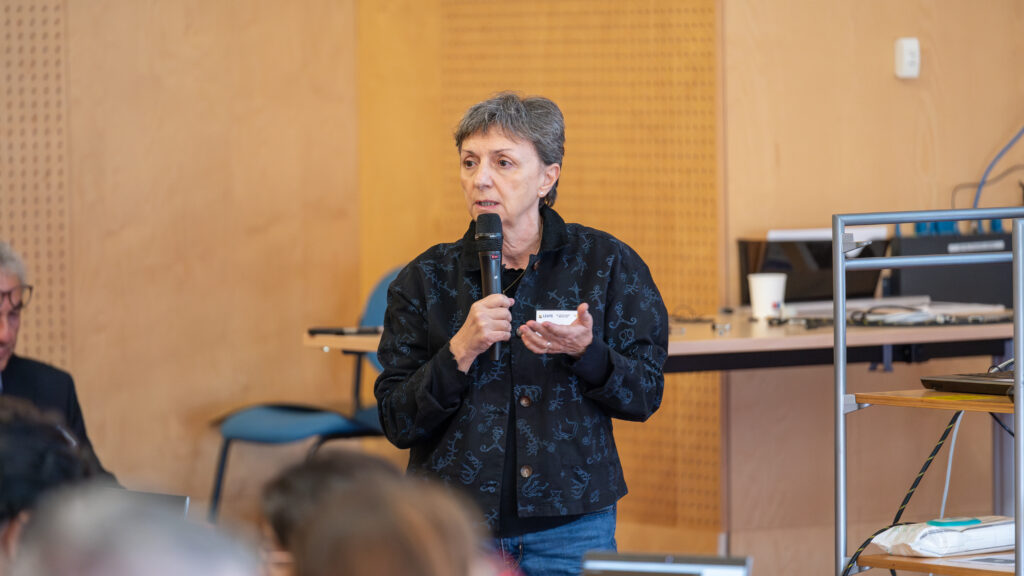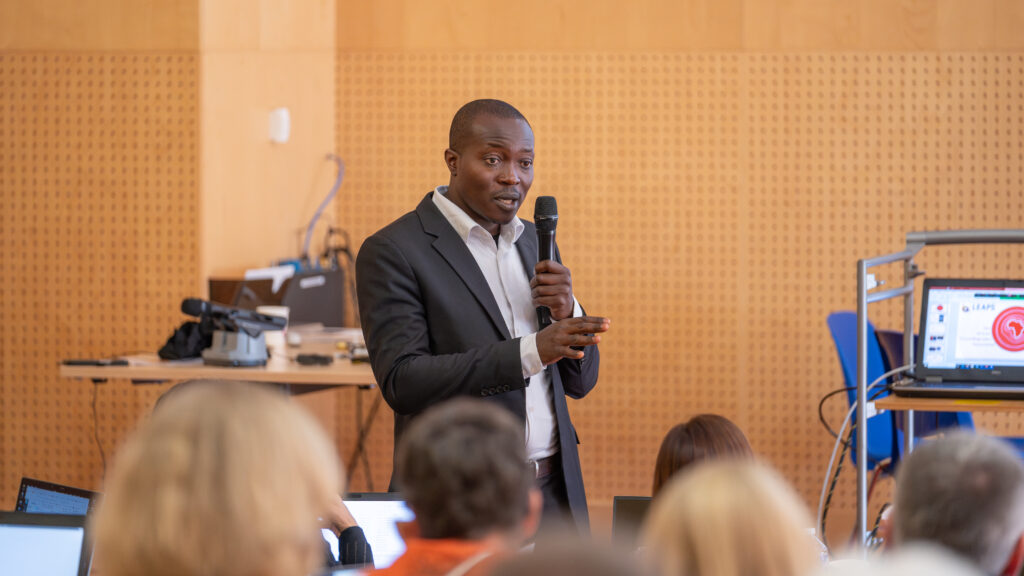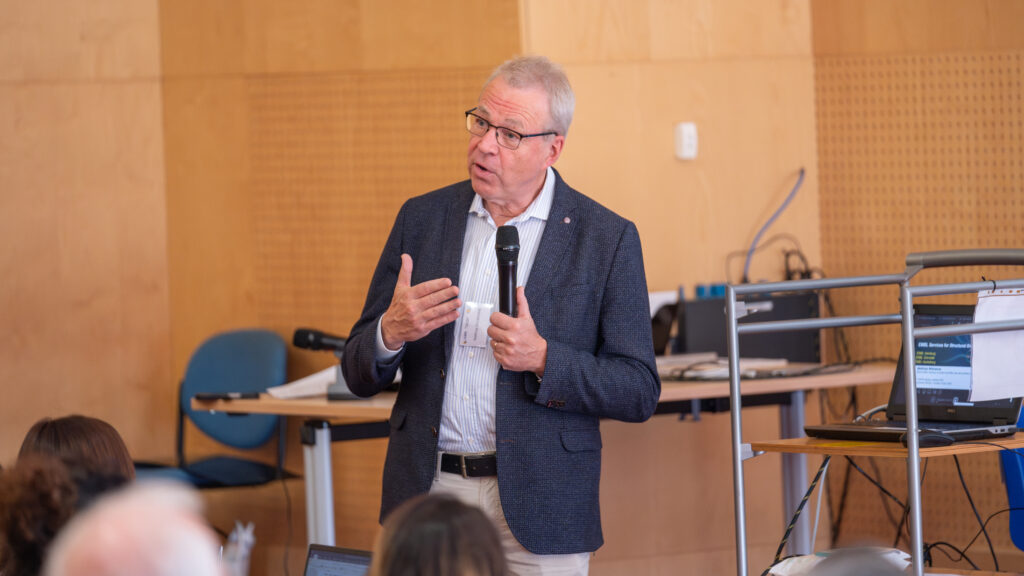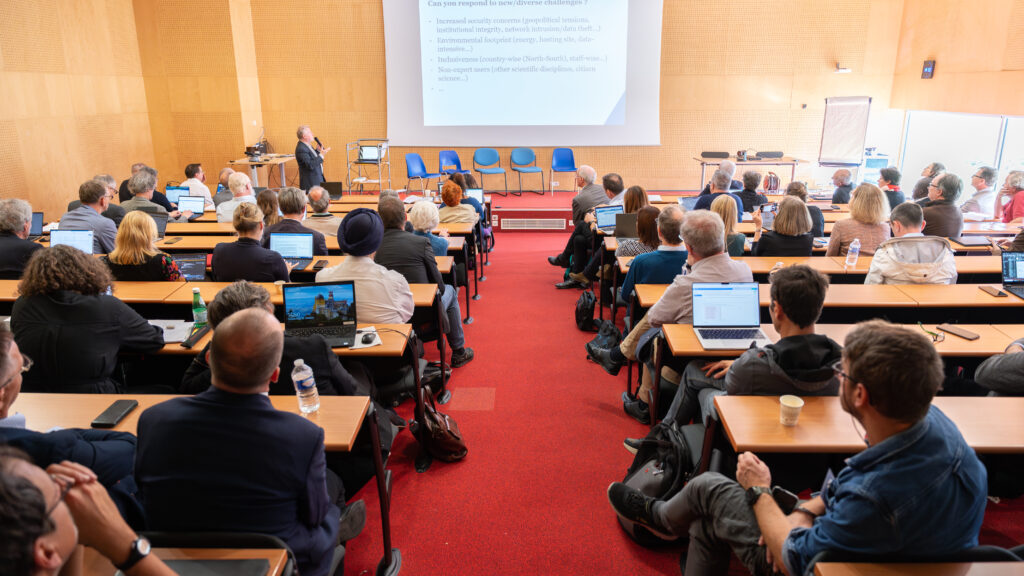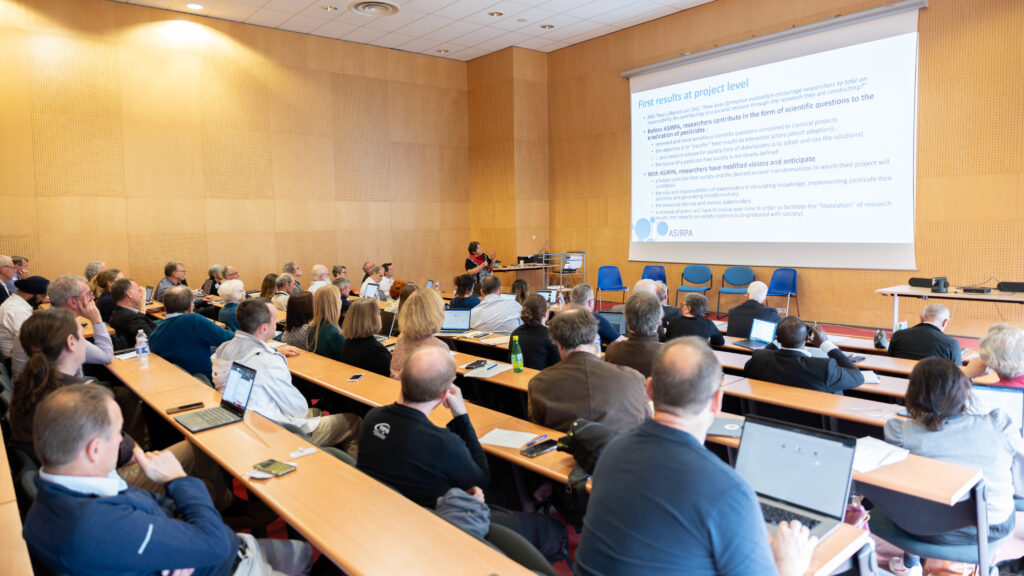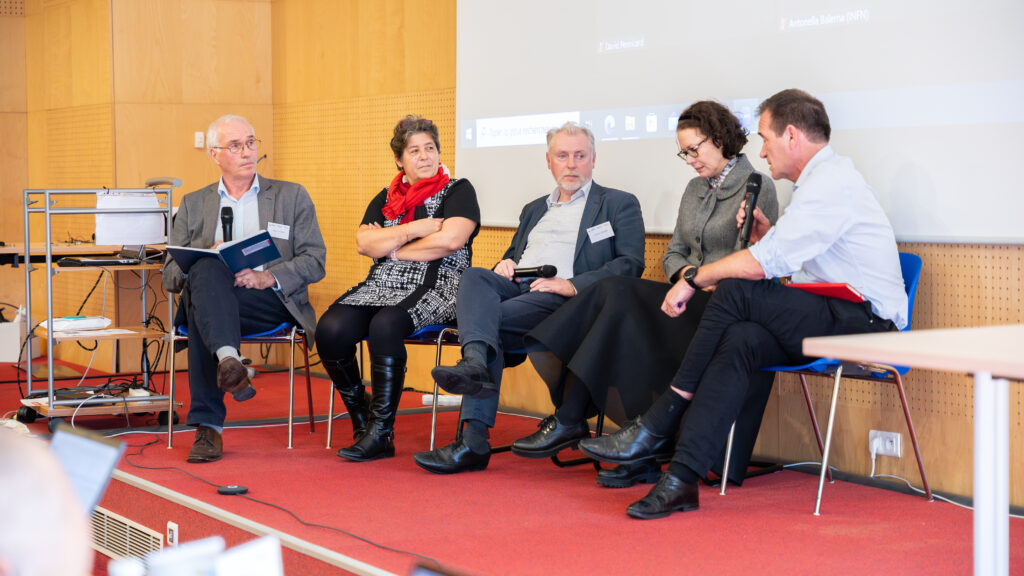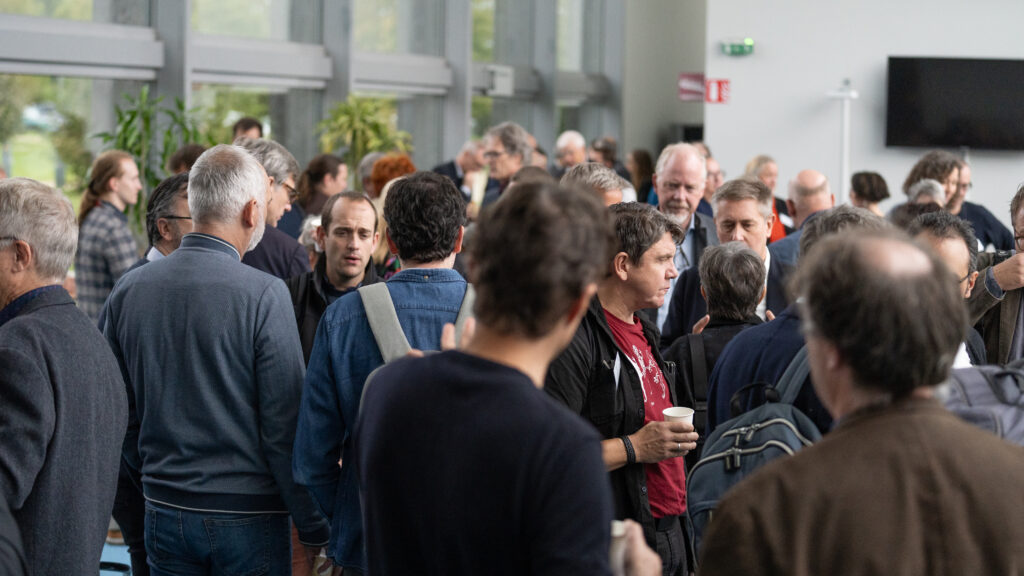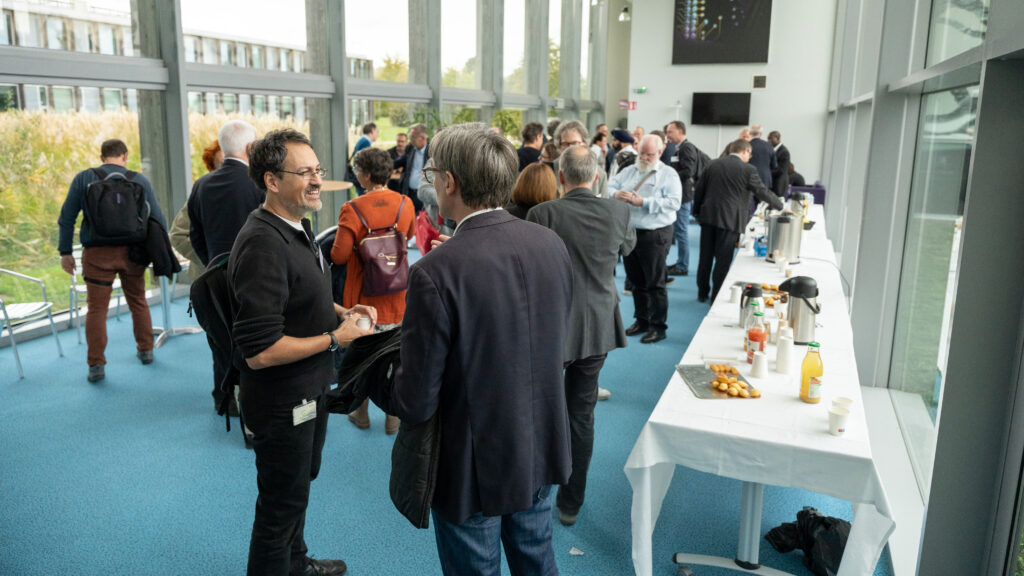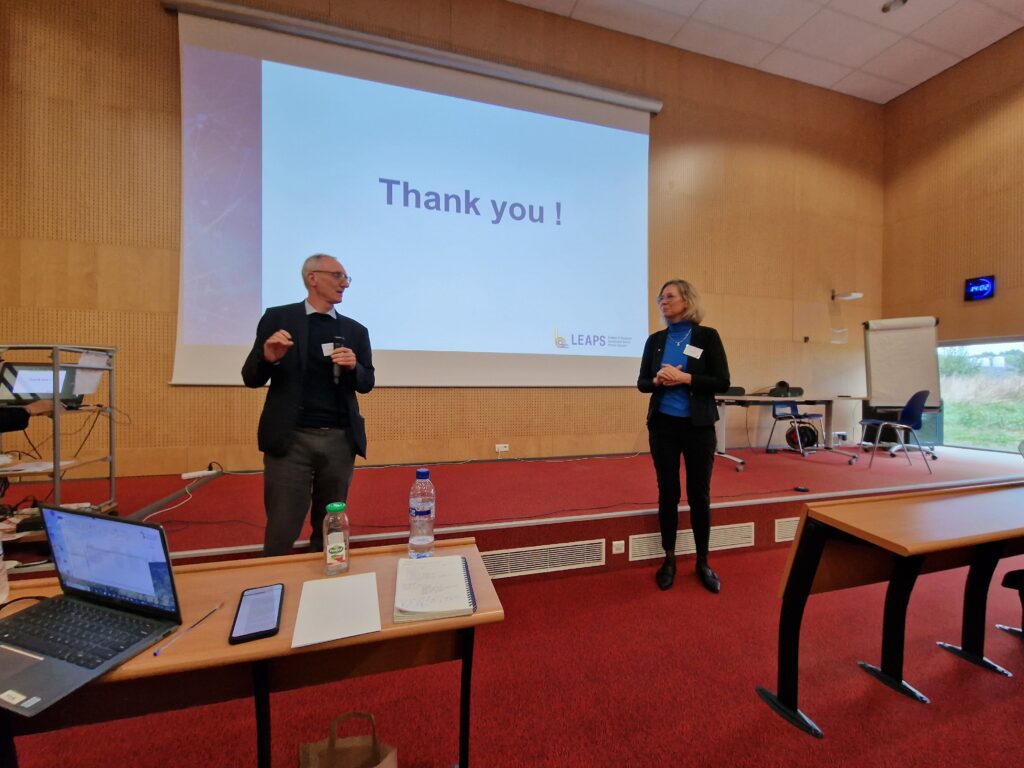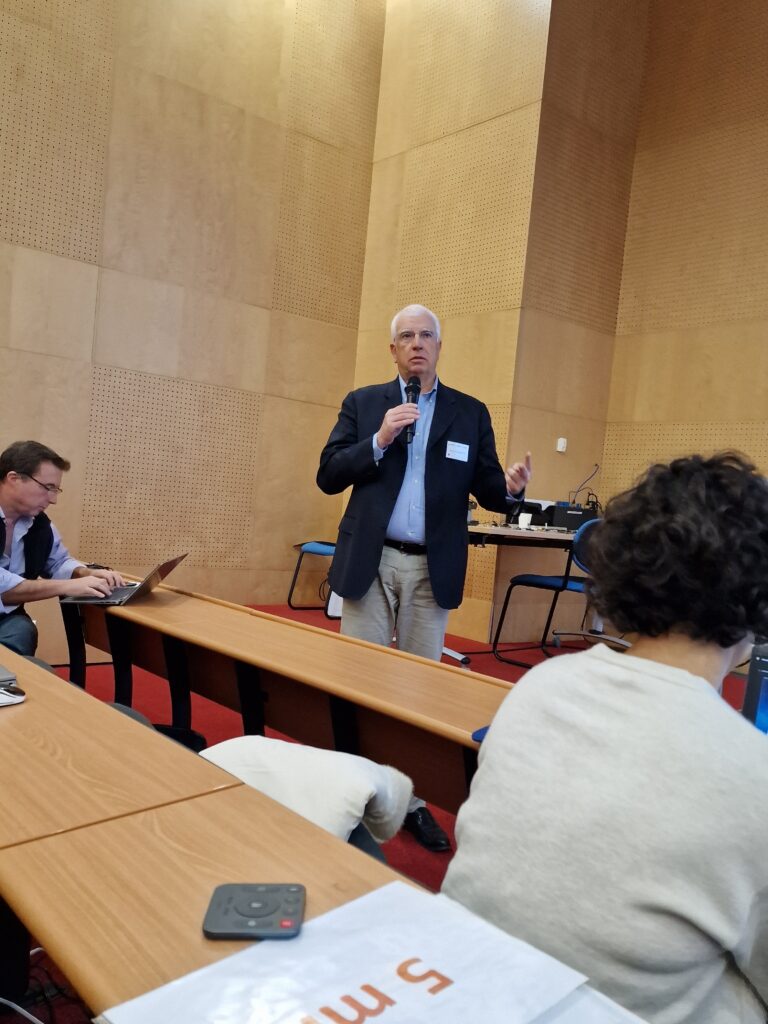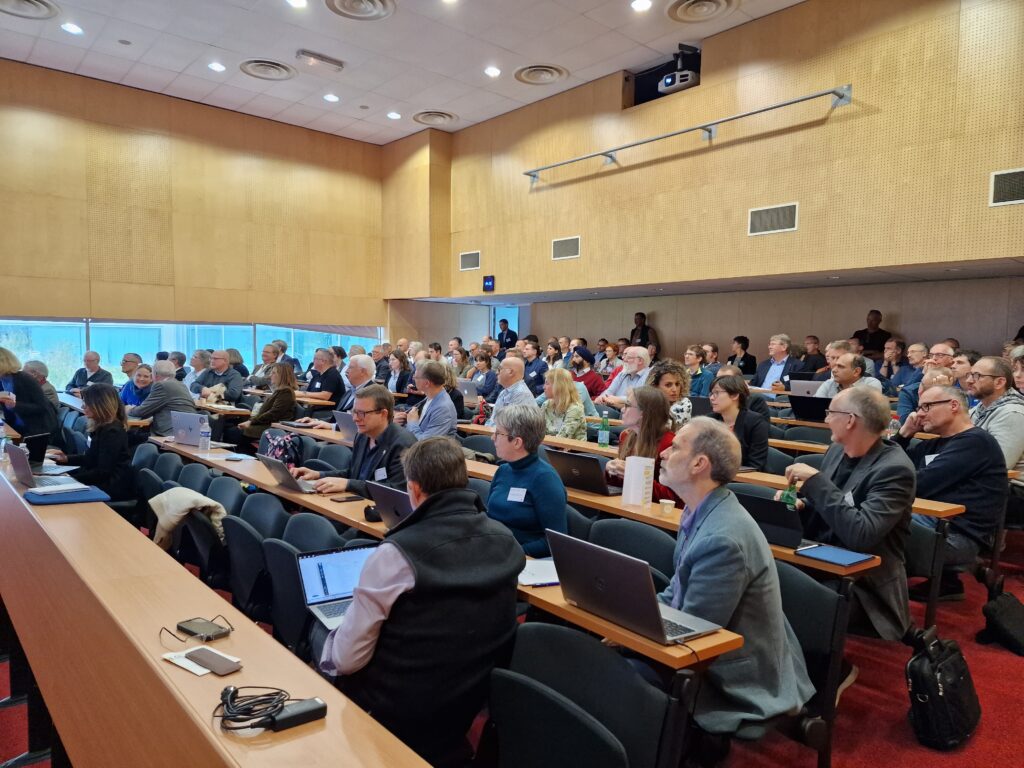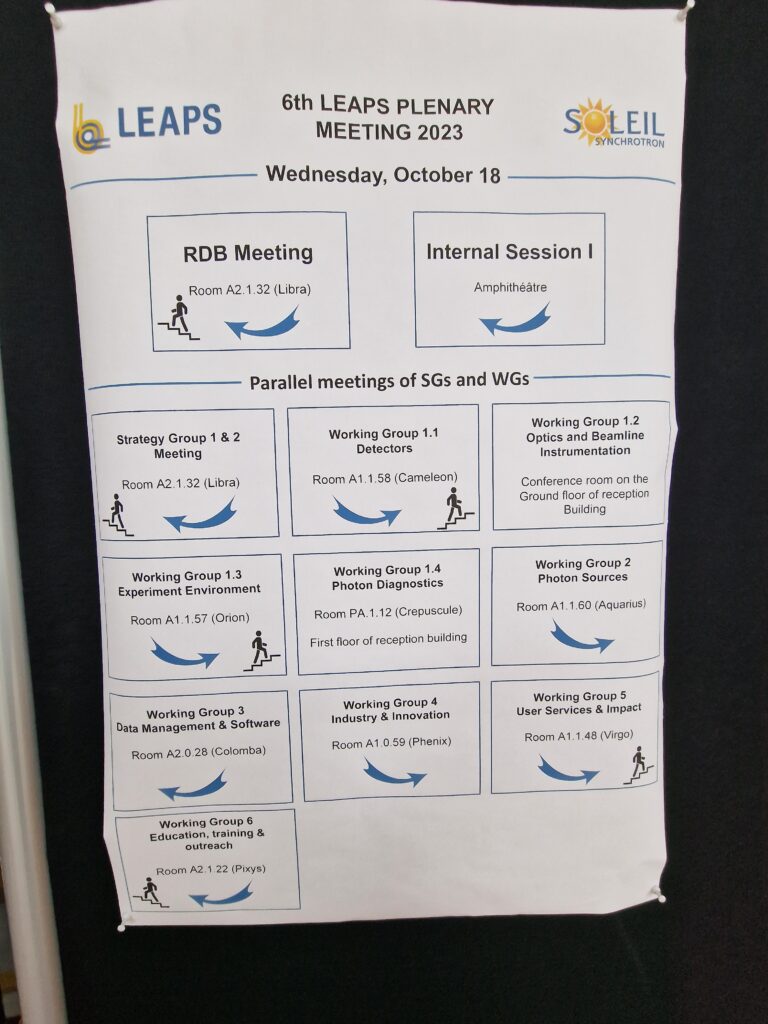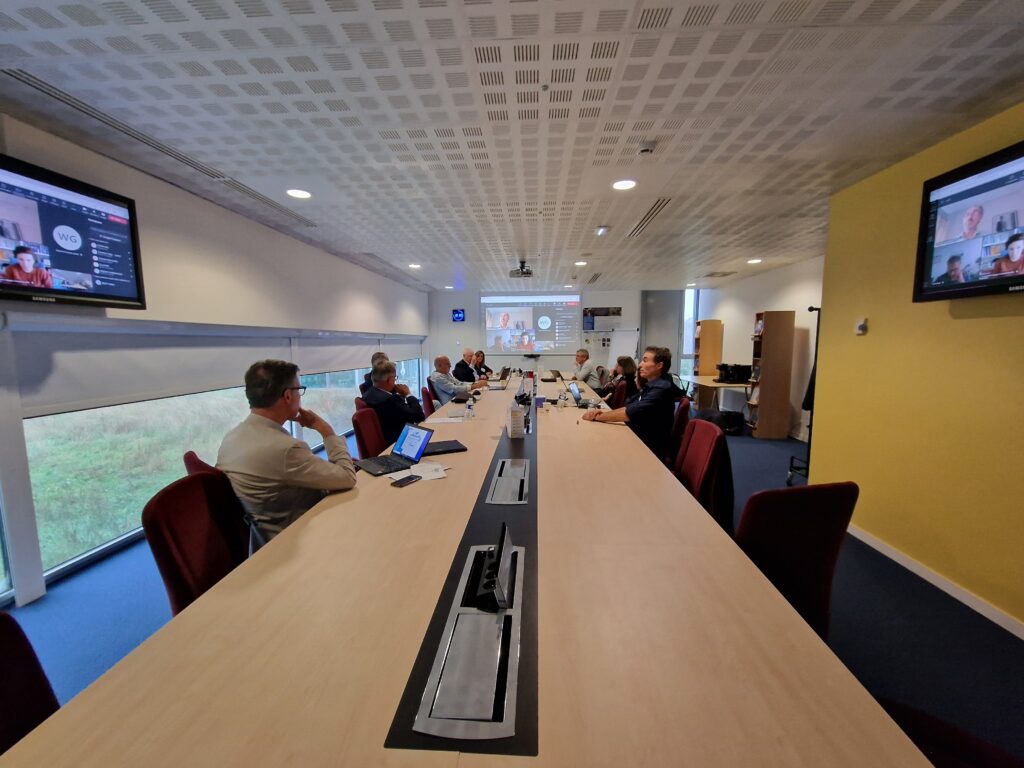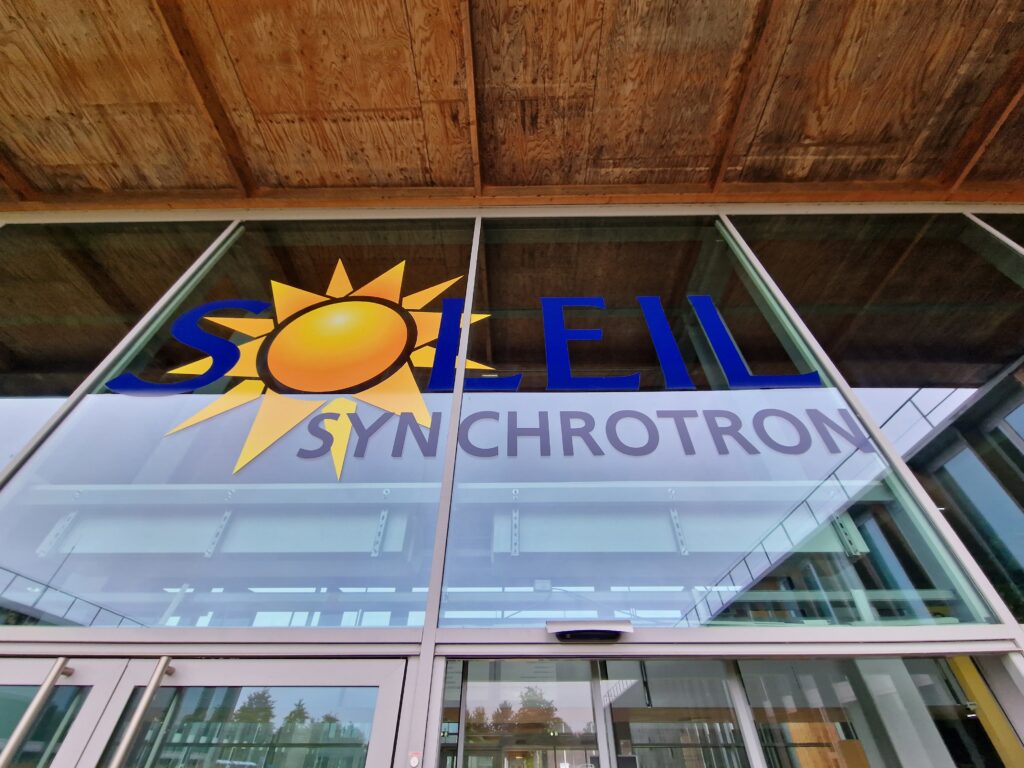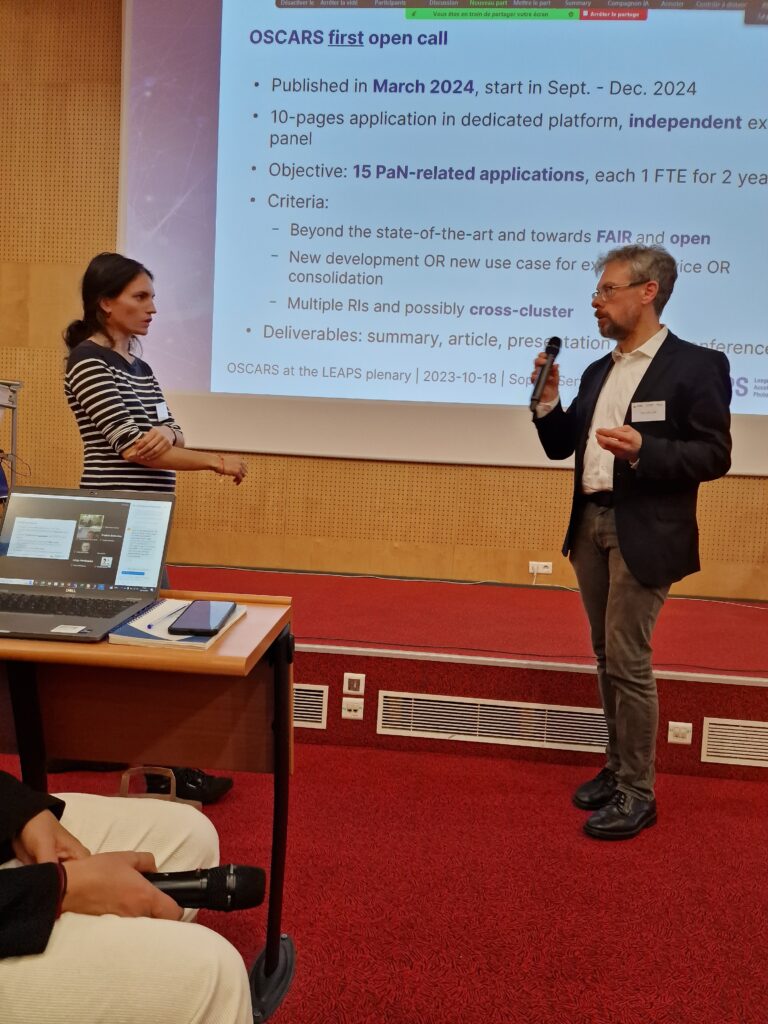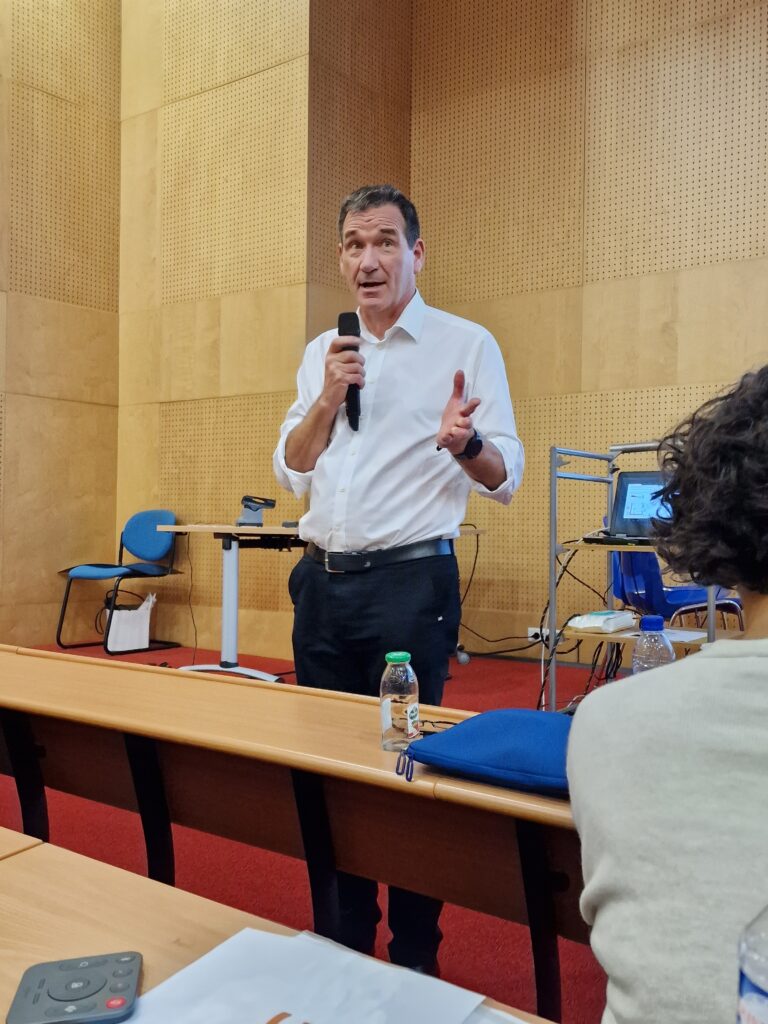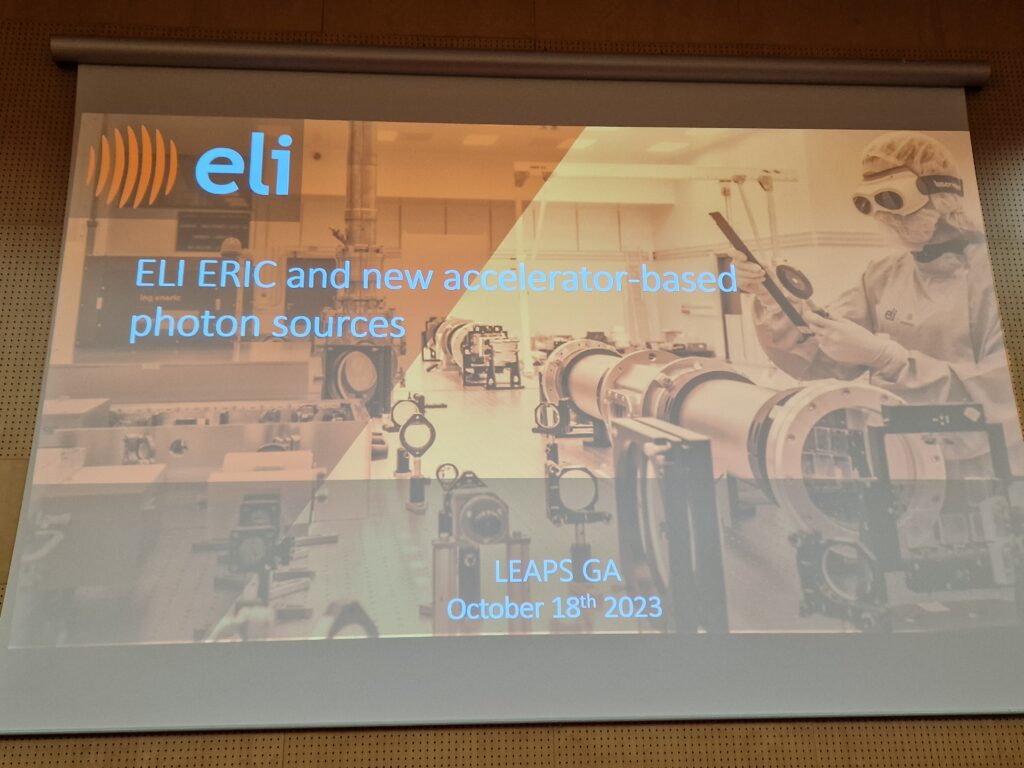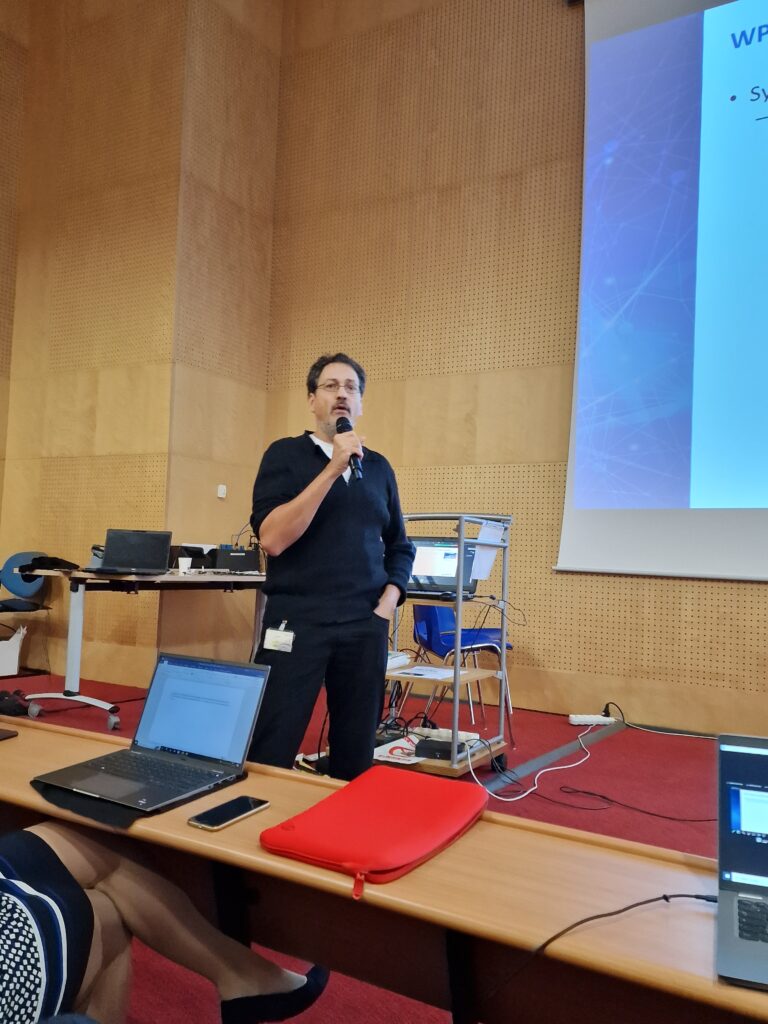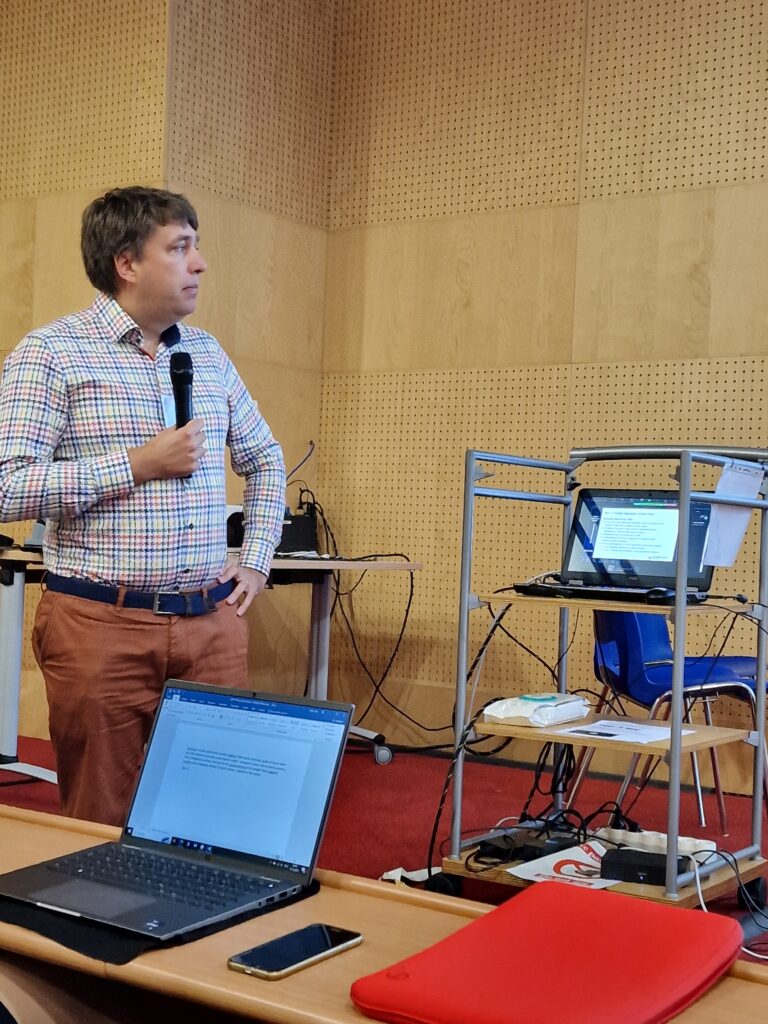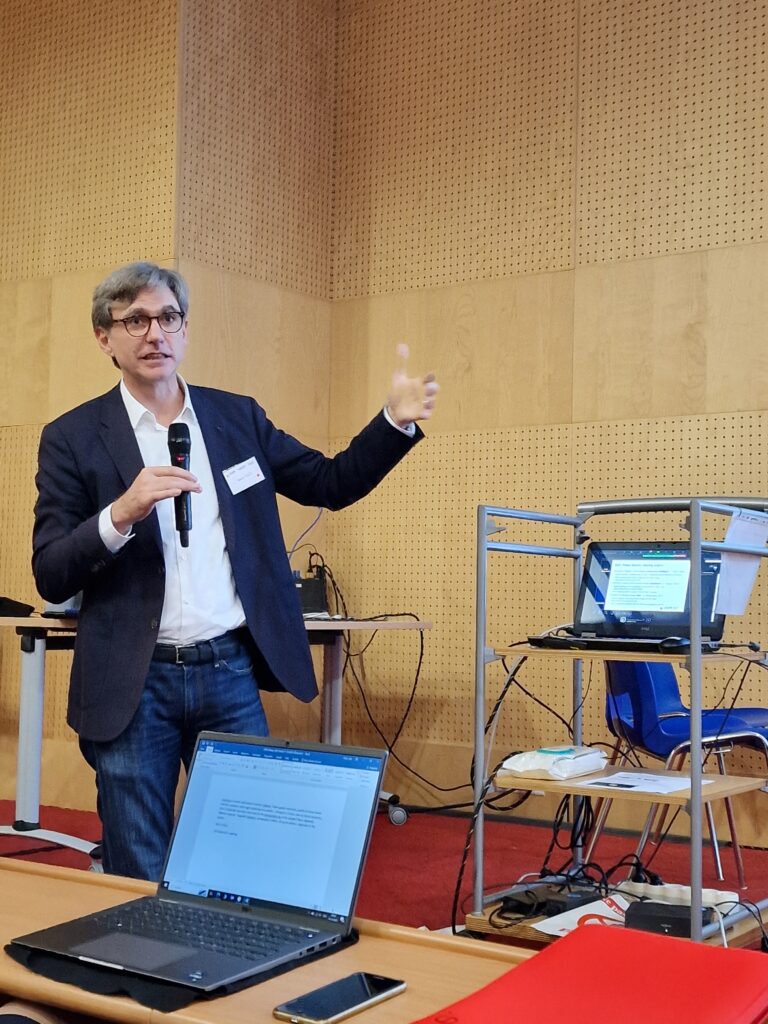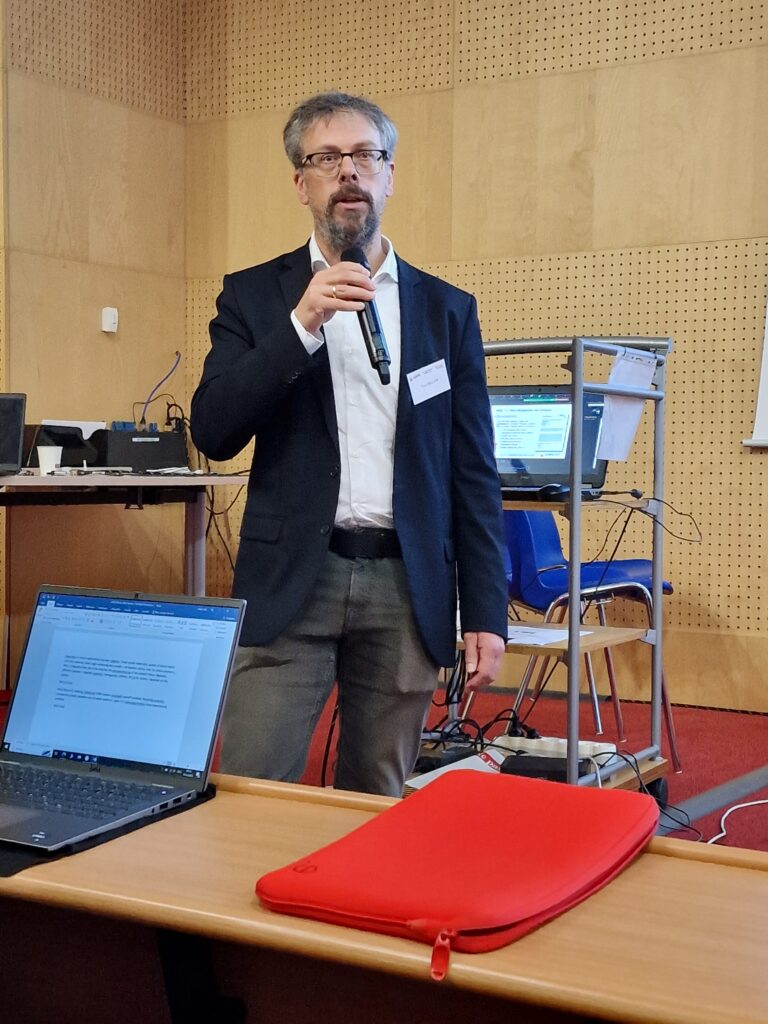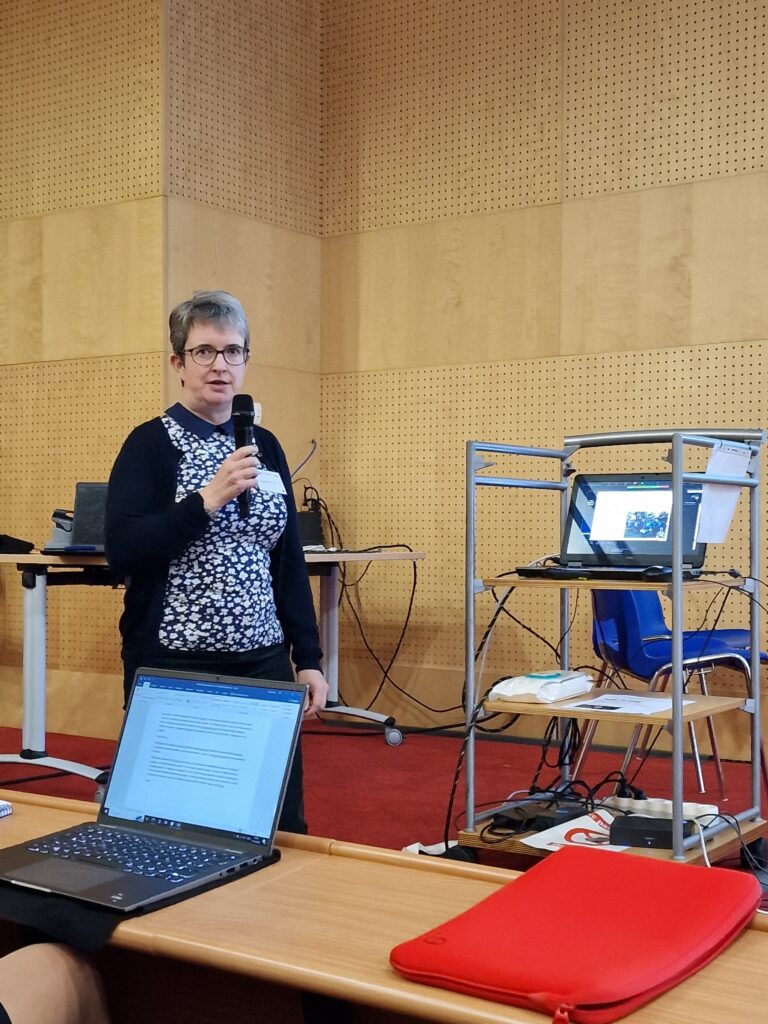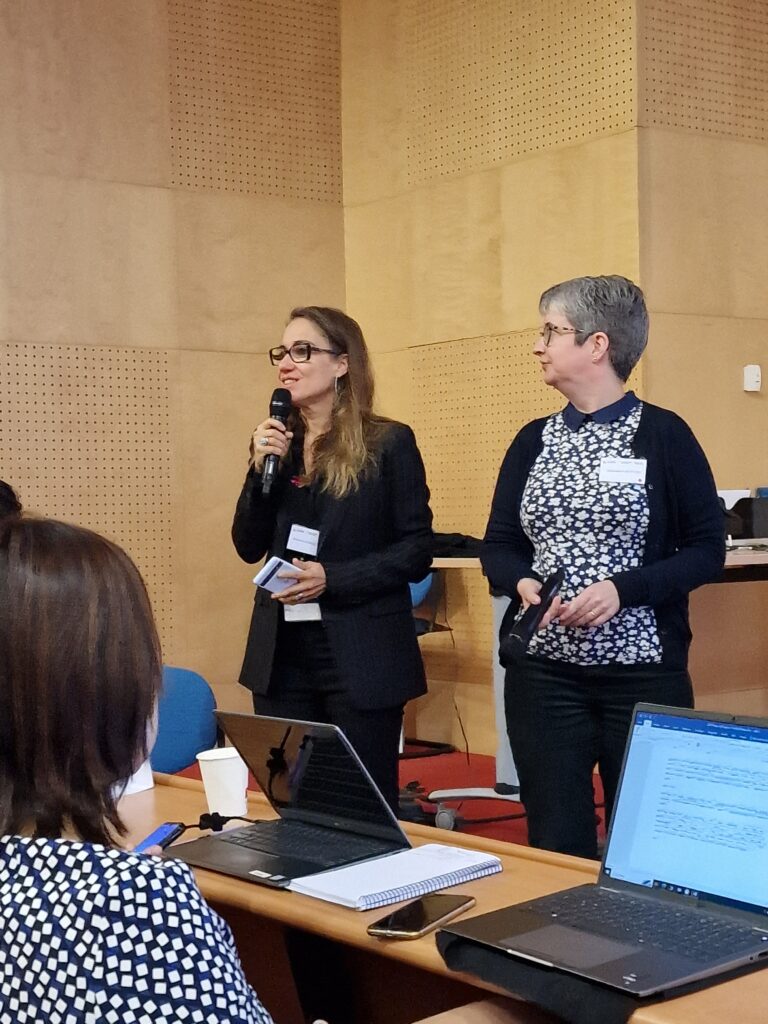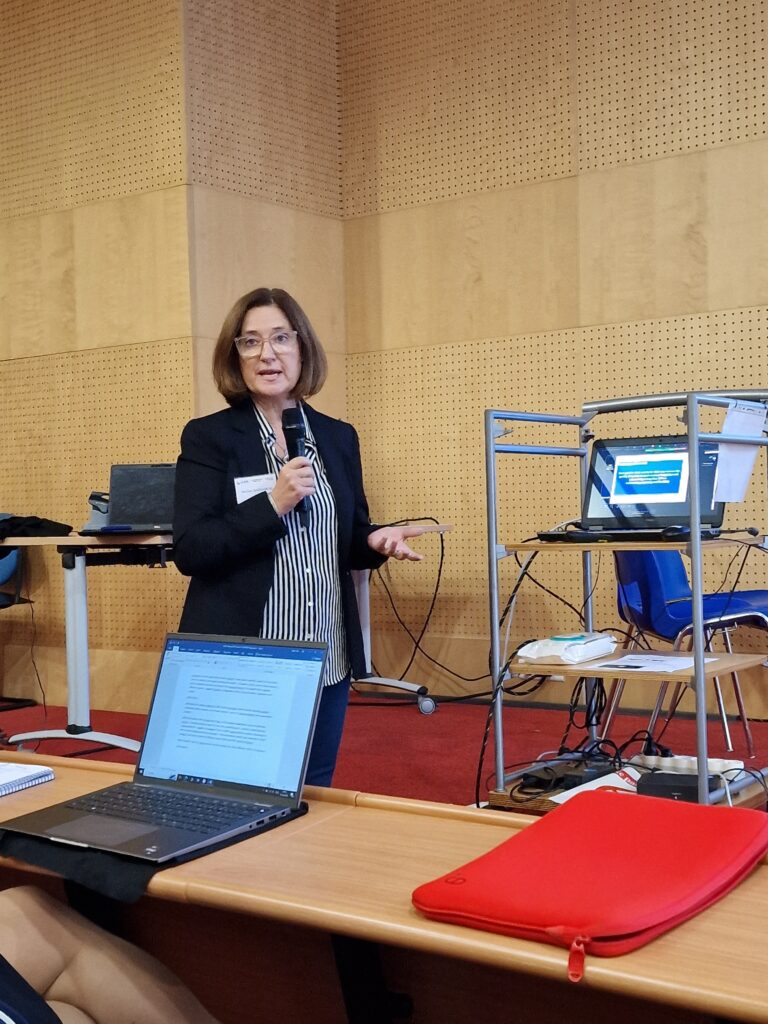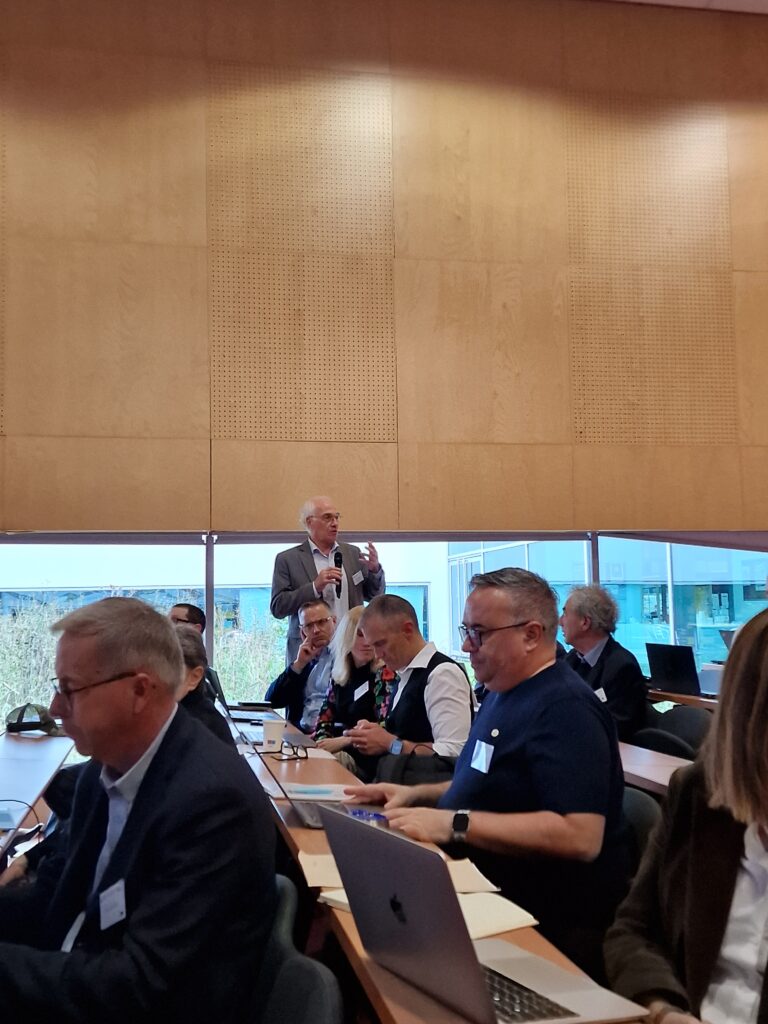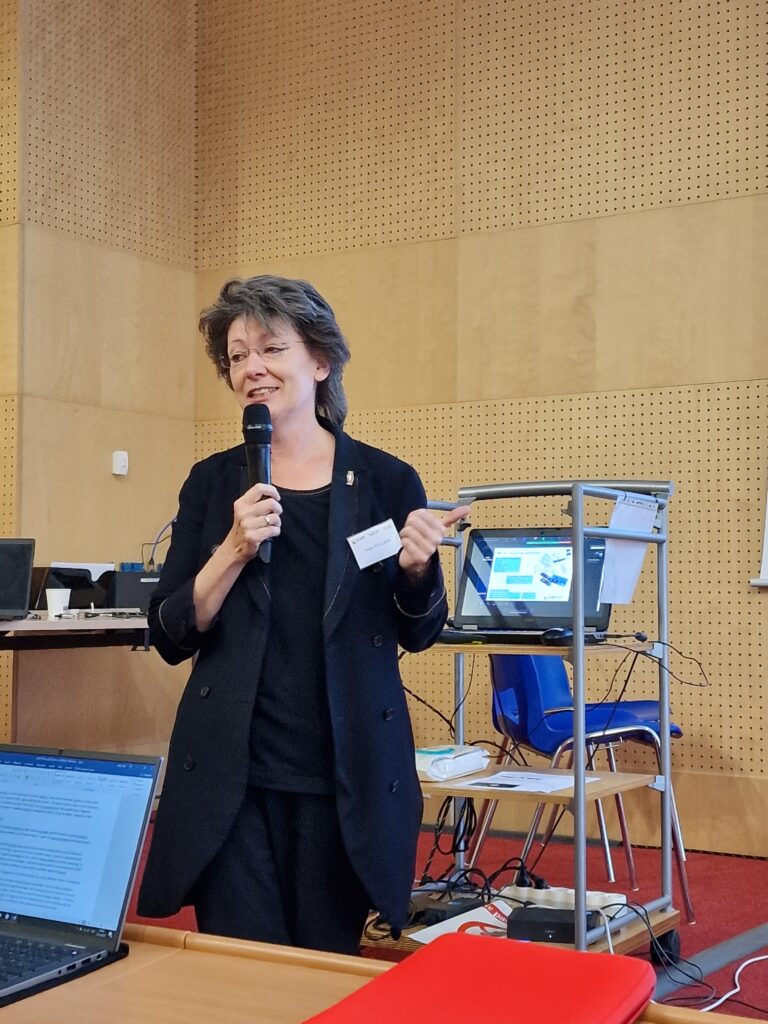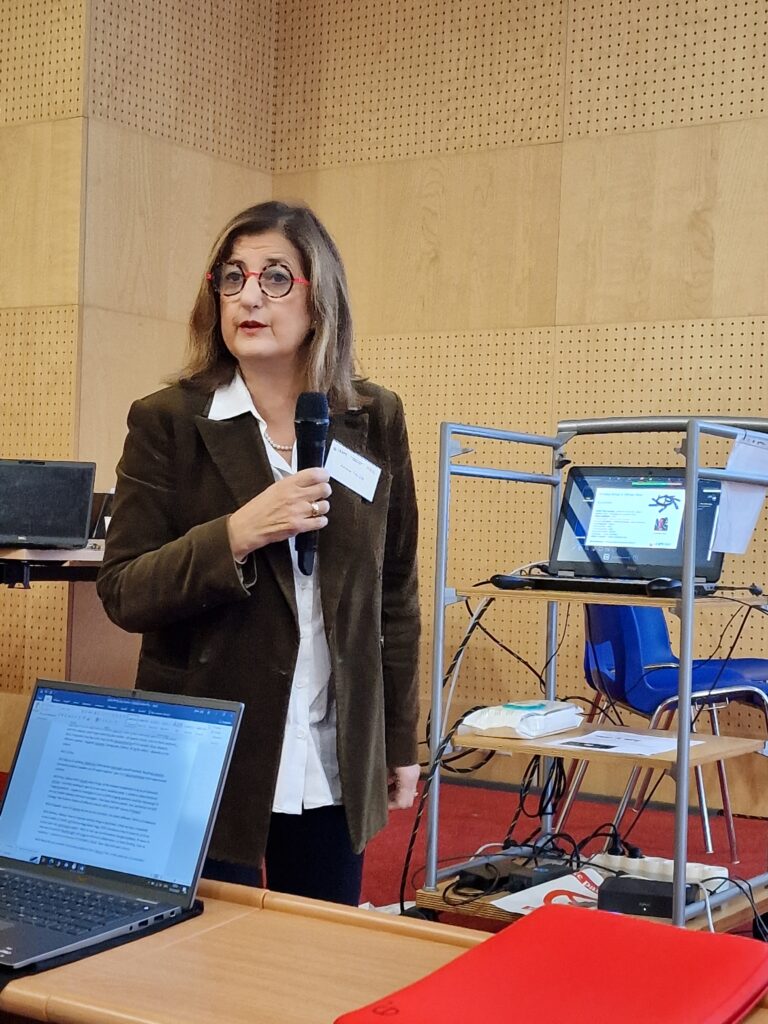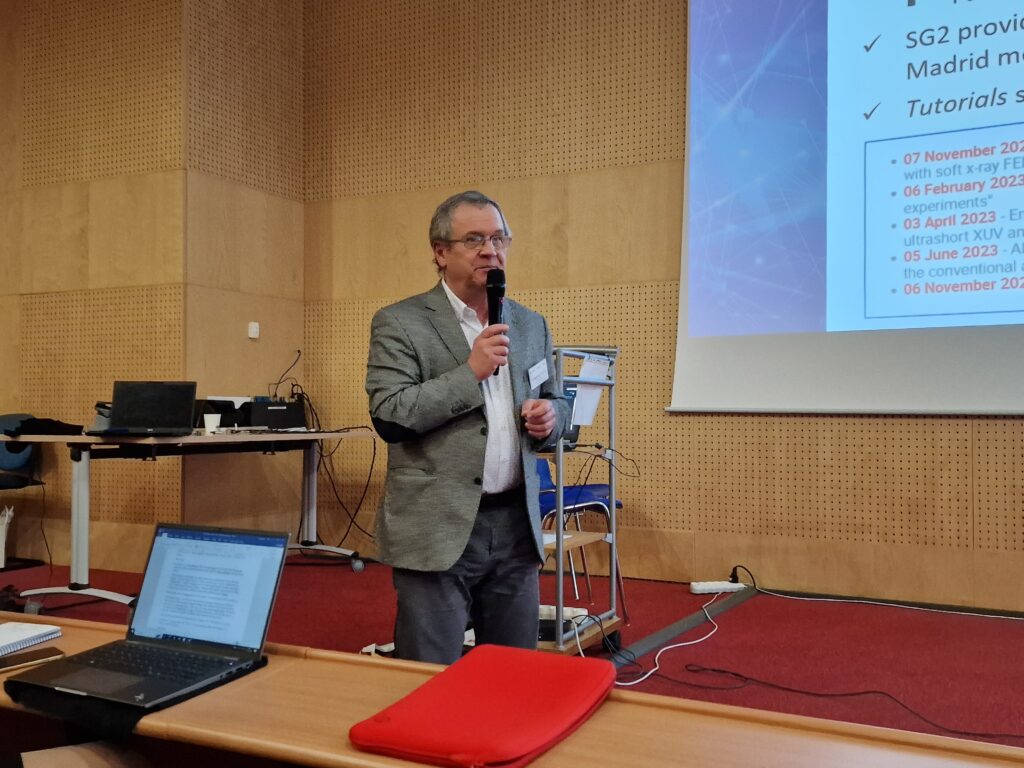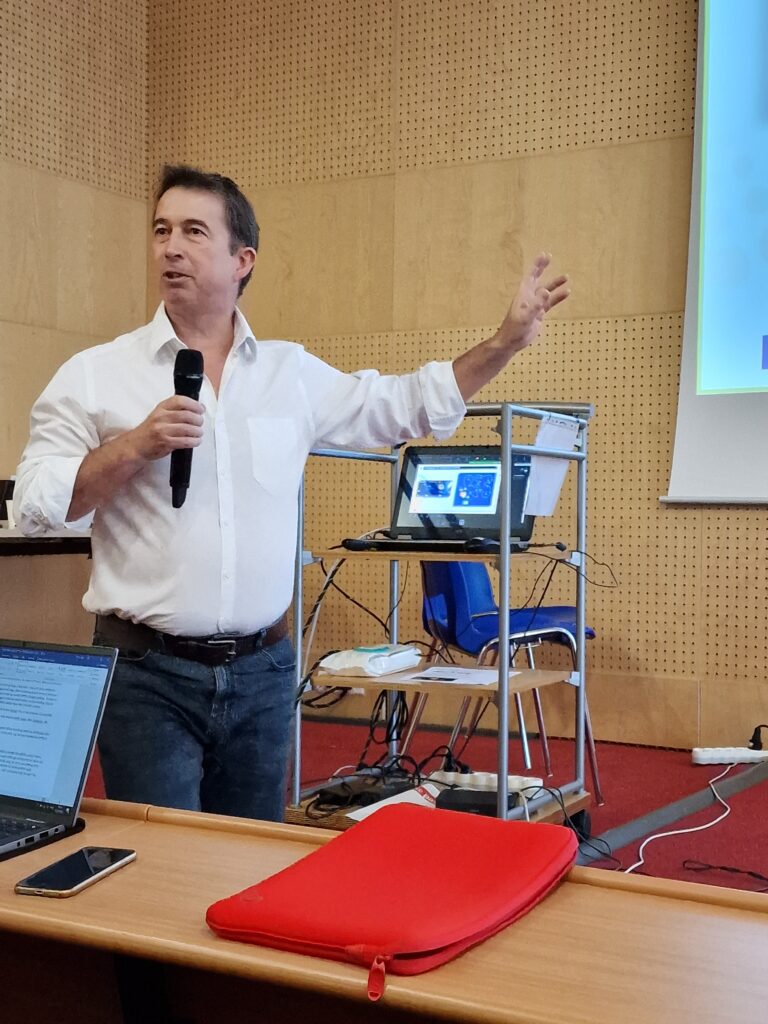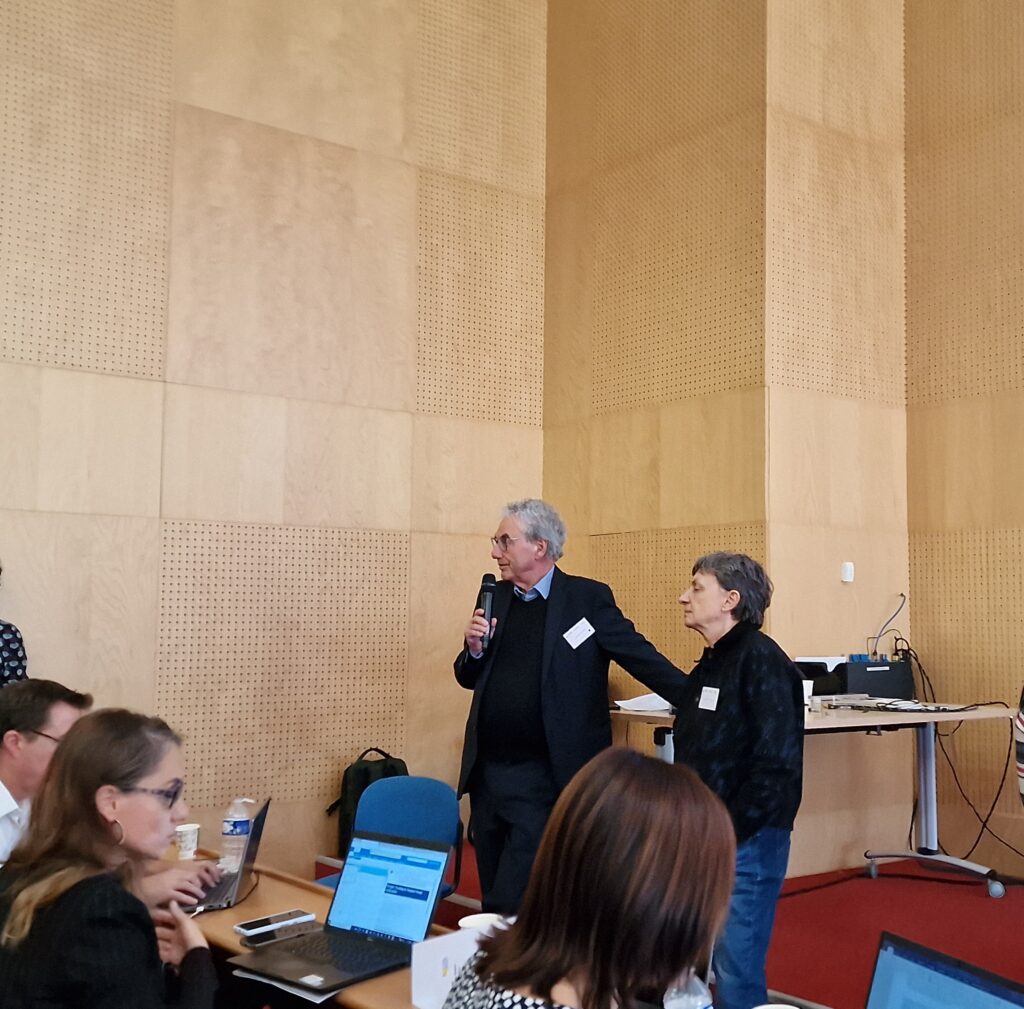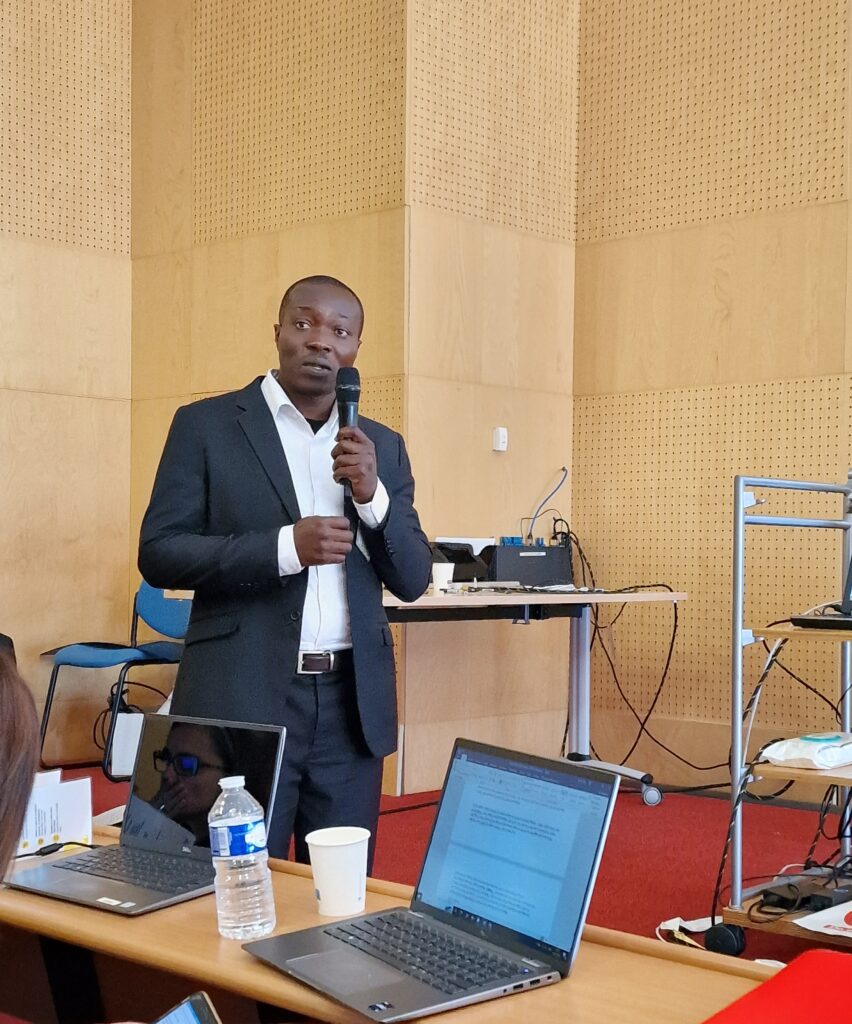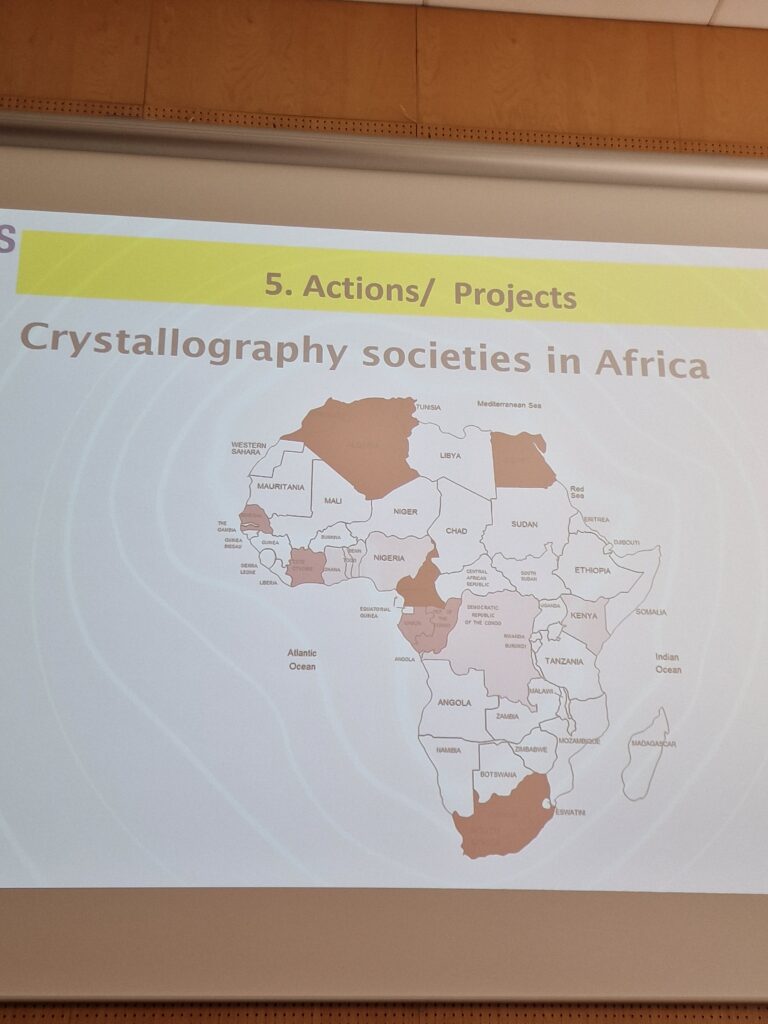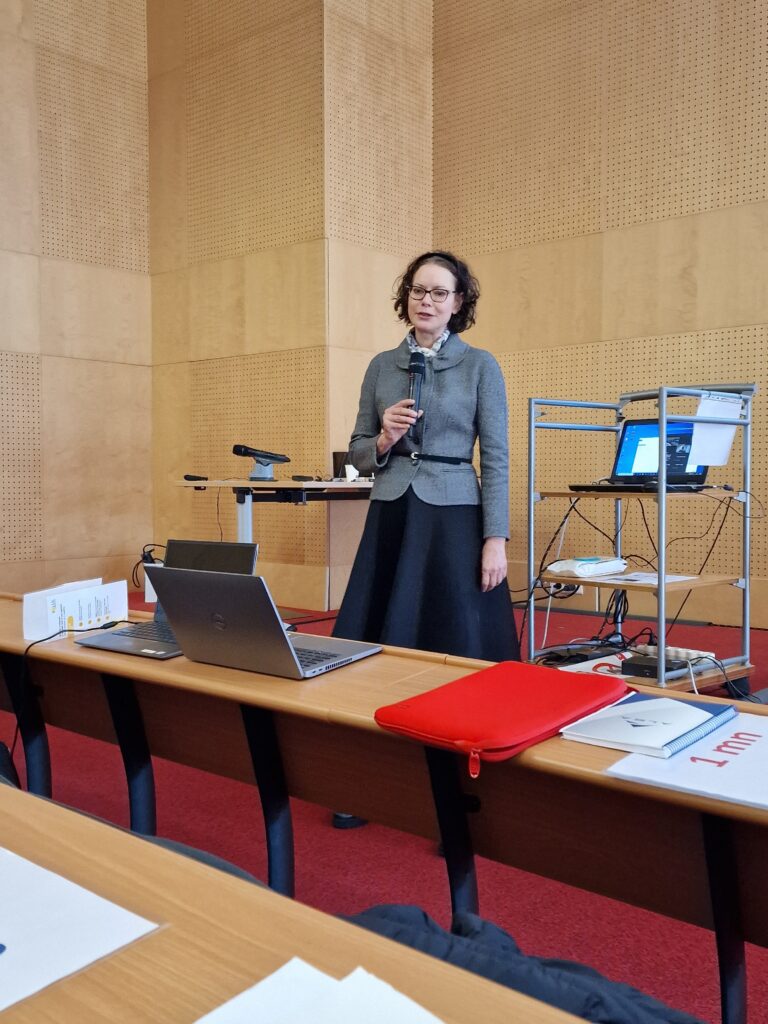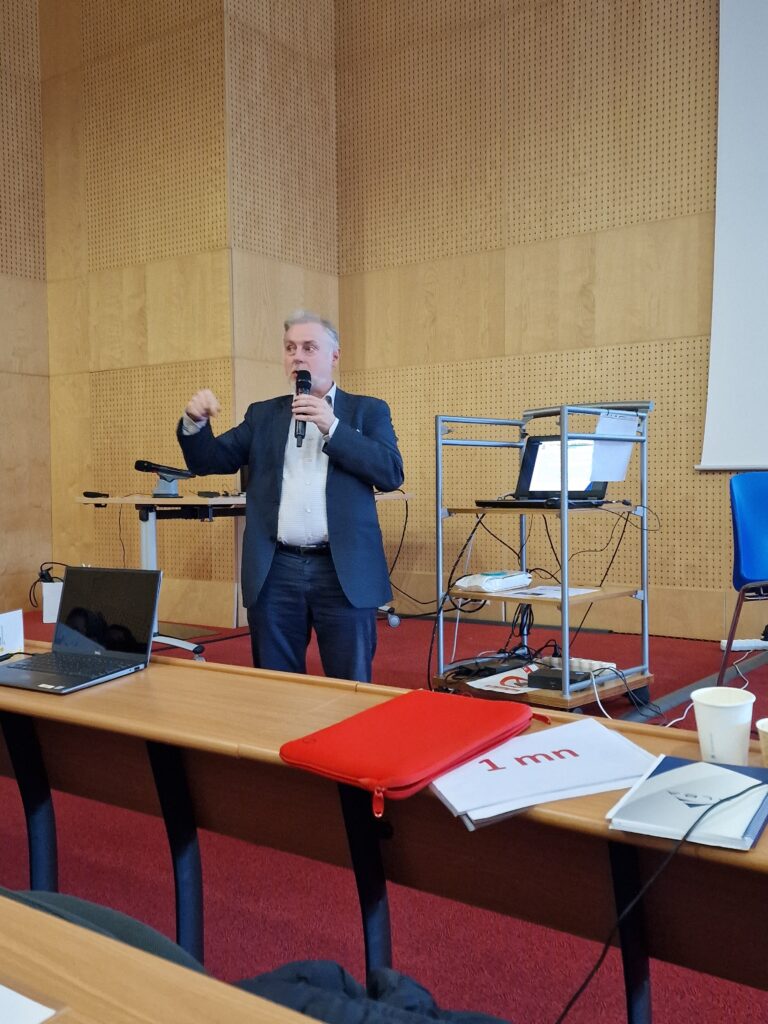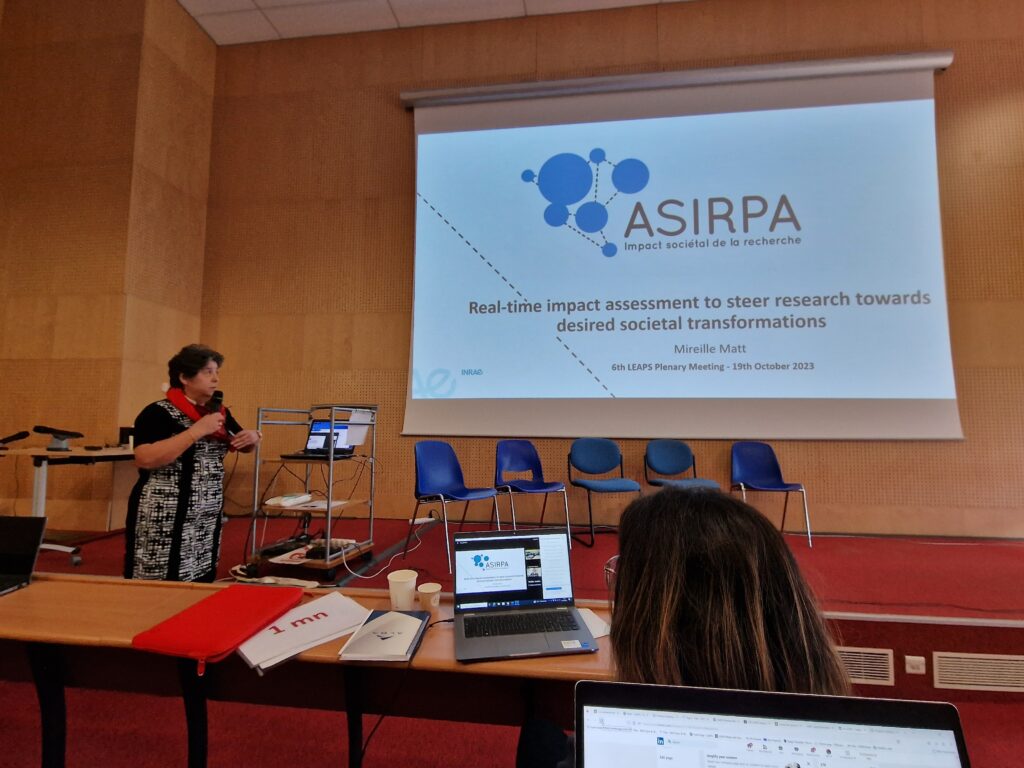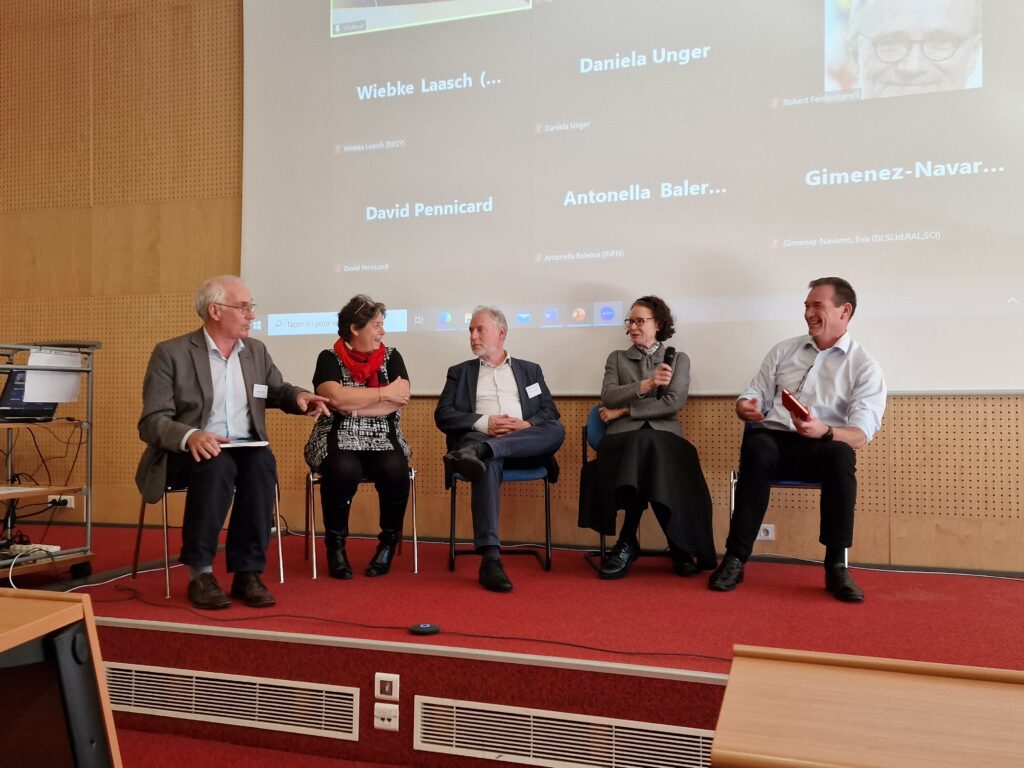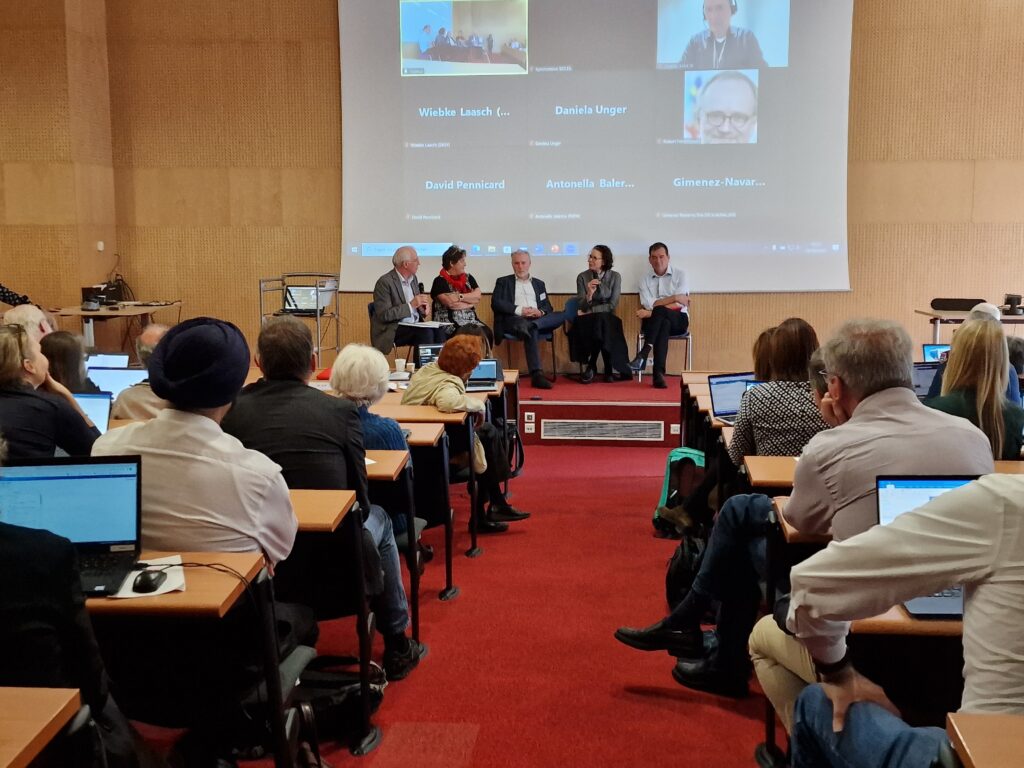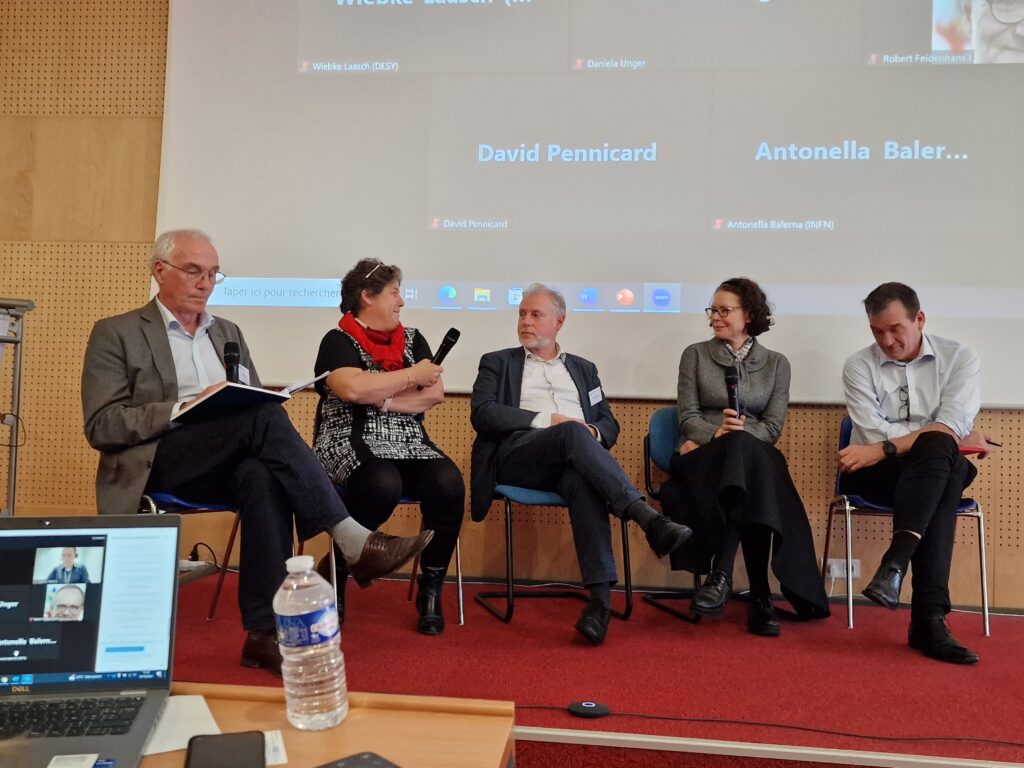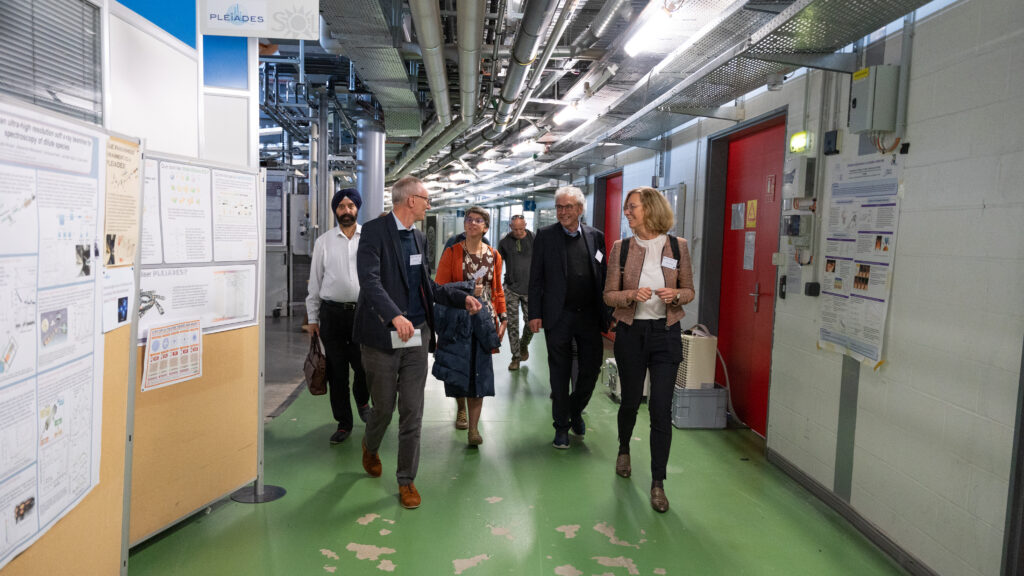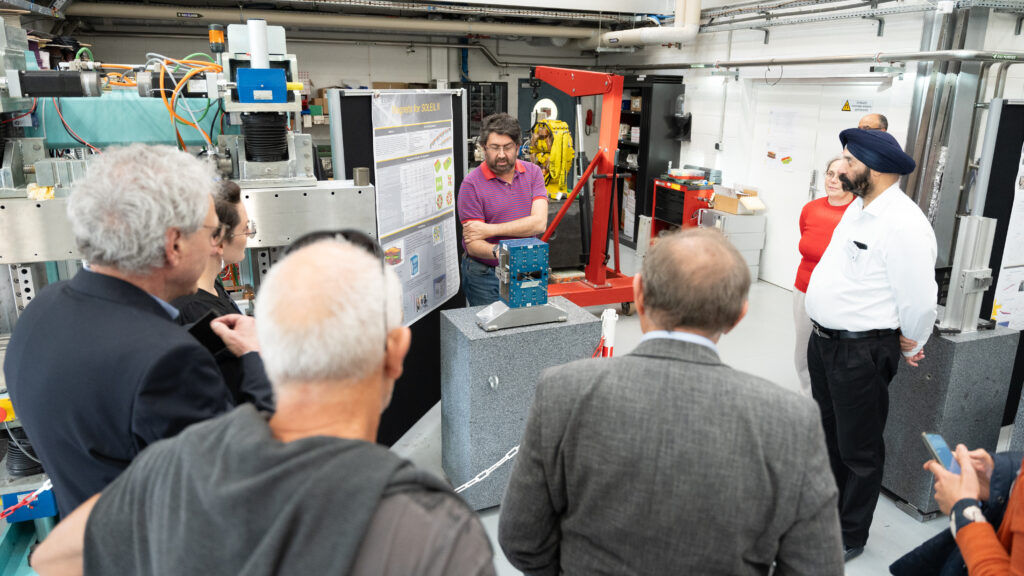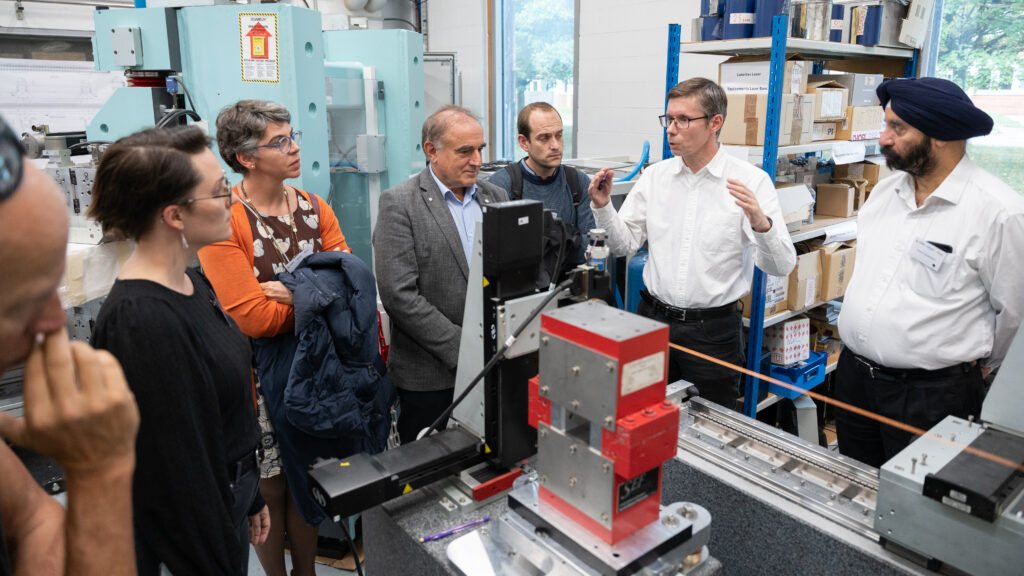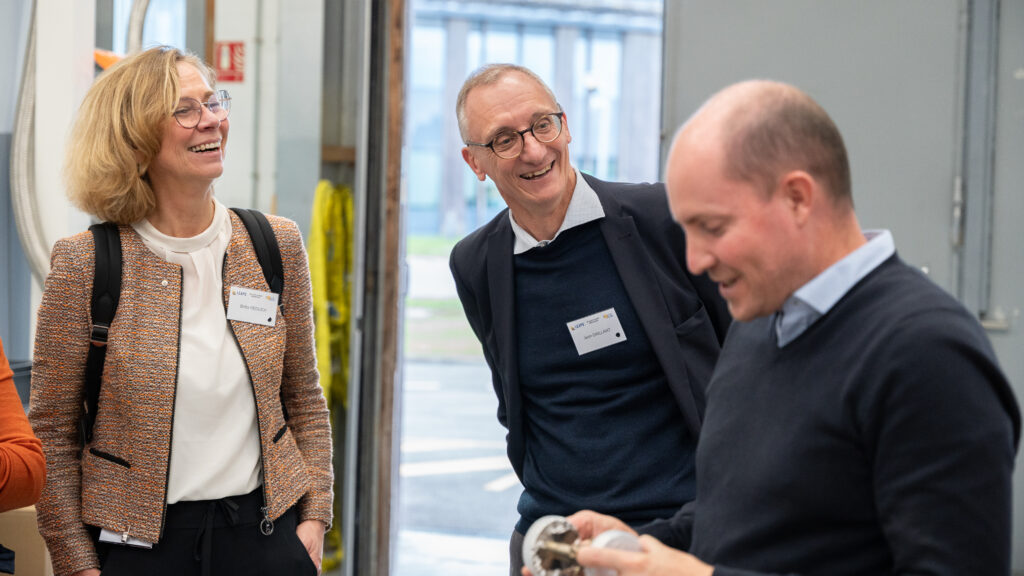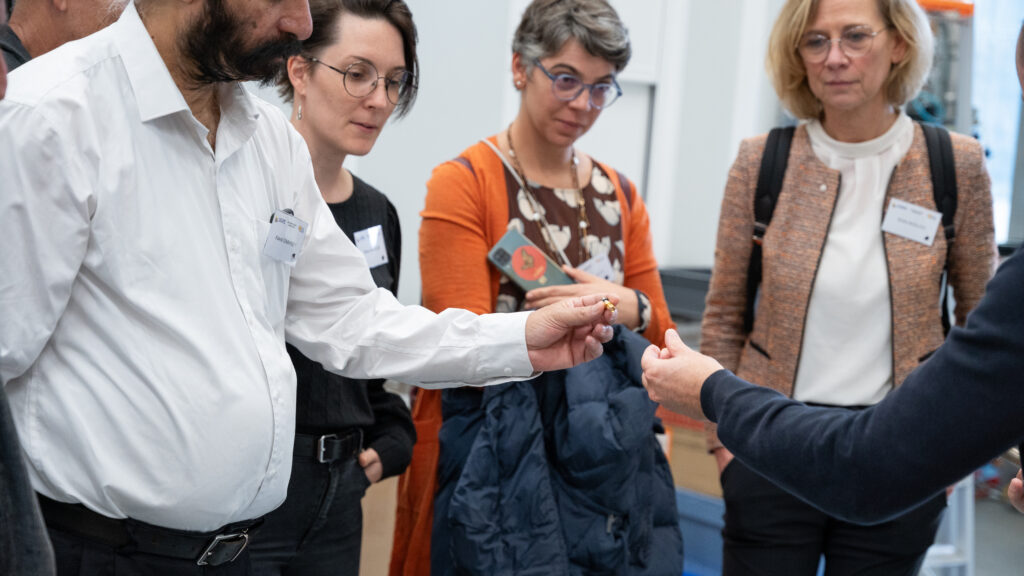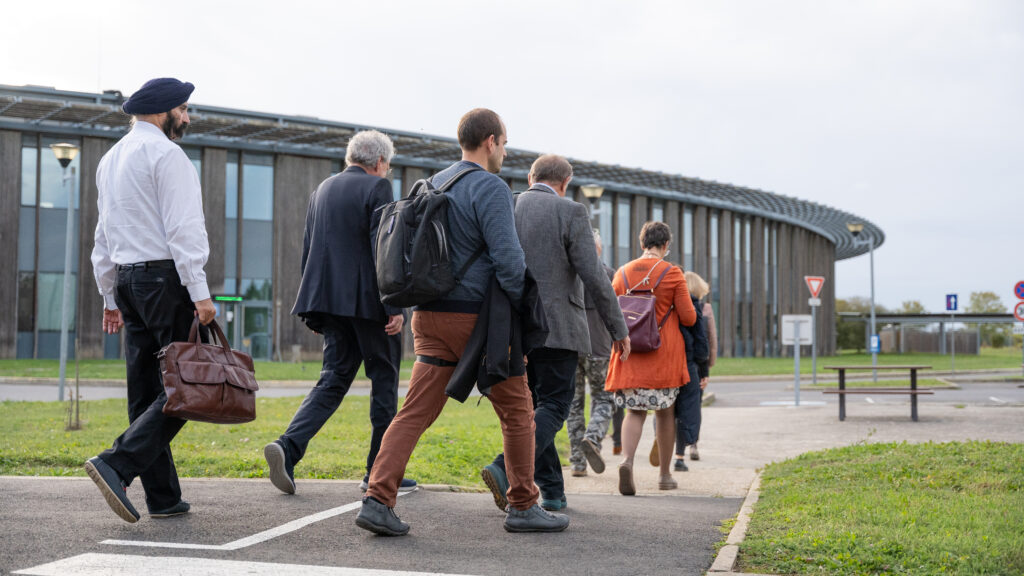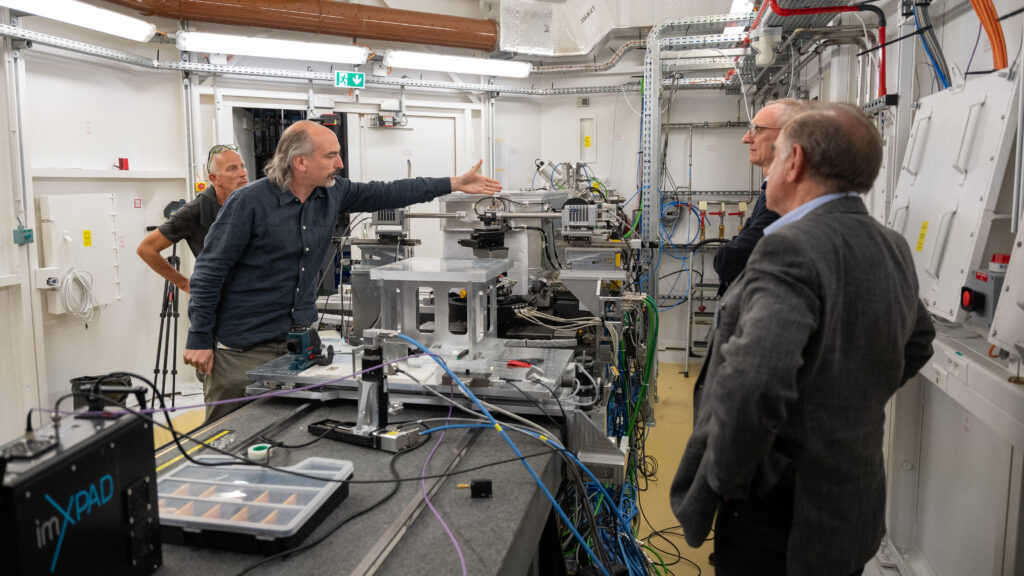More than 140 participants from all Europe met at the SOLEIL Synchoton in France for the sixth LEAPS Plenary meeting for two inspiring days showcasing the development, achievements and impact of the LEAPS community.
The Plenary Meeting kicked off with an exciting program where internal LEAPS activities were on stage. Reports on activities and progress in 2023 and plans for upcoming years. All LEAPS Working Groups (WGs) and the two Strategy Groups (SGs)had the opportunity to meet face to face in parallel and discuss their collaboration activities. The program also included sessions dedicated to an overview of the newly funded EU projects, RIANA, NEPHEWS and OSCARS. A highlight of the days was the ceremony where the LEAPS Chair baton passed from Jean Daillant (Synchrotron SOLEIL) to Britta Redlich (HFML–FELIX) who will chair LEAPS in 2024.
On its second day the Plenary started with a collective session with all LEAPS WGs and SGs presenting their recent achievements, outlook and plans for future work. It created a moment for the realisation and acknowledgement of the tremendous work done by so many members of the LEAPS community and how much progress the community has achieved since the beginning of LEAPS. LEAPS Chair, Jean Daillant, expressed his gratitude to all members of the community from all LEAPS members for all the work and energy dedicated to carry on LEAPS mission.
The morning program of the second day of the annual LEAPS Plenary Meeting concluded with highlights and exciting progress reports about the EU Projects: @LEAPS-INNOV and ReMade@ARI and a LEAPS Pilot Project for QT strategic access – STRAQTECH. Report on LEAPS activities and on this year LEAPS Meets Life Sciences Conference and the ESRF STREAMLINE project rounded the program focusing on current LEAPS current activities.
In the last open session of the Plenary Meeting 2023 LEAPS welcomed prominent external guest speakers – Patrice Tsobnang Kenfack (University of Dschang, Cameroon & the African Crystallographic Association); Jana Kolar (ESFRI); Frédéric Sgard (OECD)and Mireille Matt (INRAE) – highlighting diverse perspectives on the scientific and socio-economic impact of research infrastructures in Europe and beyond. The afternoon concluded with an interesting round table discussion on “Socio-economic impact assessments” and how LEAPS members can work in cooperation to achieve the most impactful and visible science and services for the European Research Area.
The day ended with a memorable experience, where participants could enjoy French cuisine while riding a boat along the river Seine, enjoying magnificent views of the most iconic monuments in the work, the Eifel Towel, Louvre, Notre Dame…
